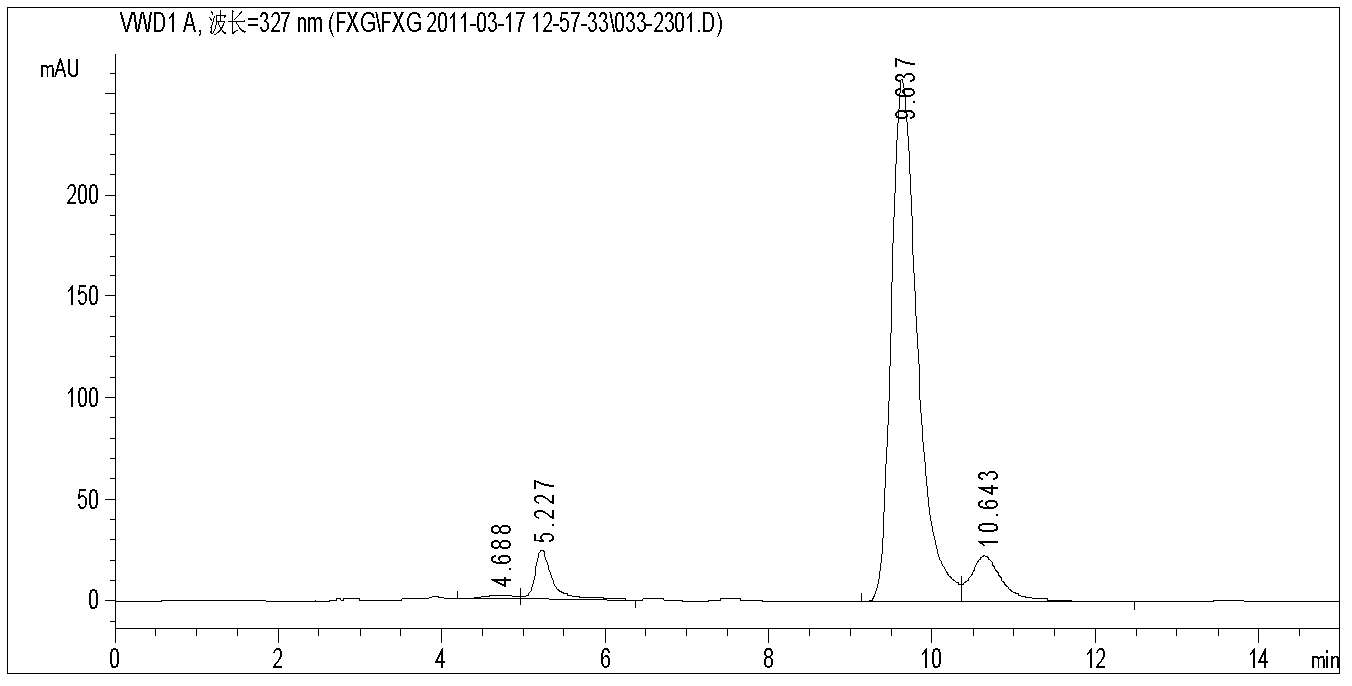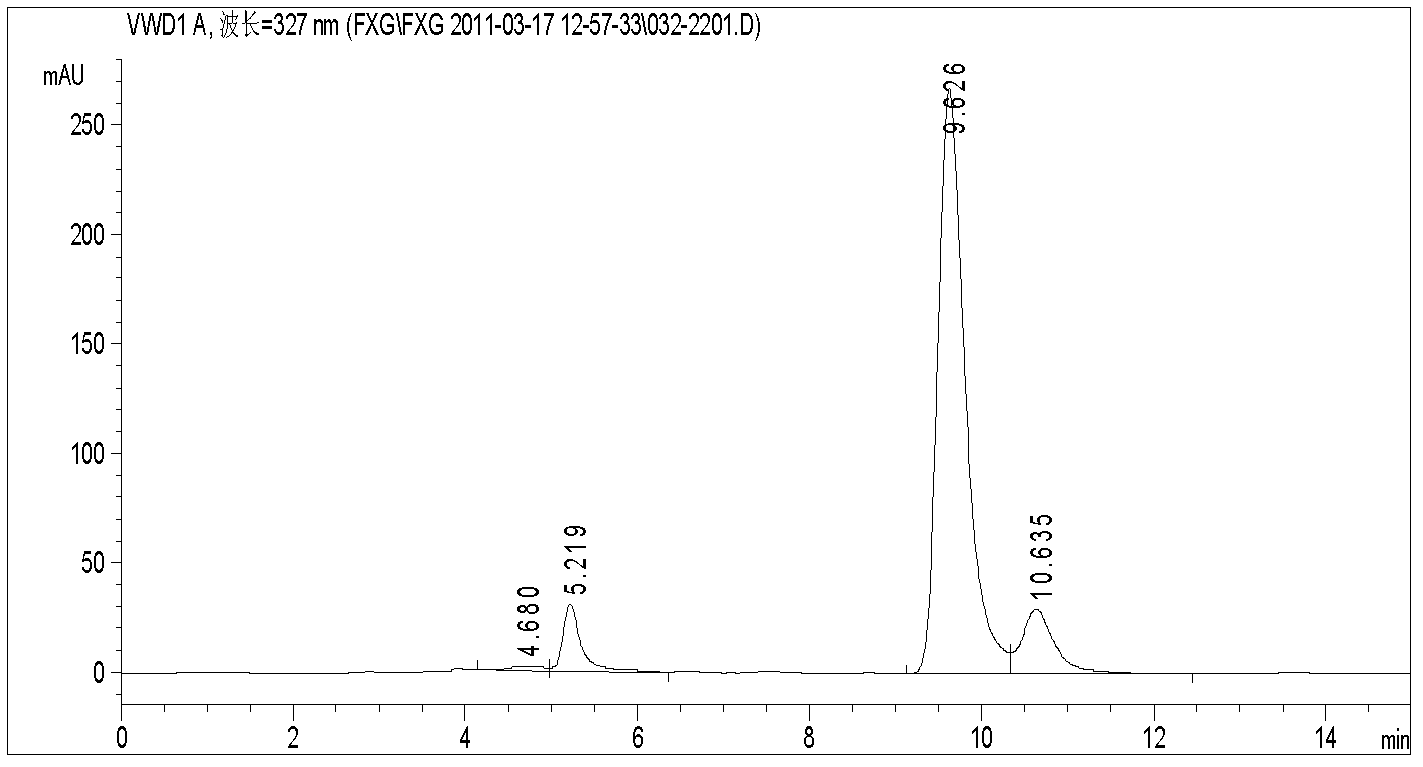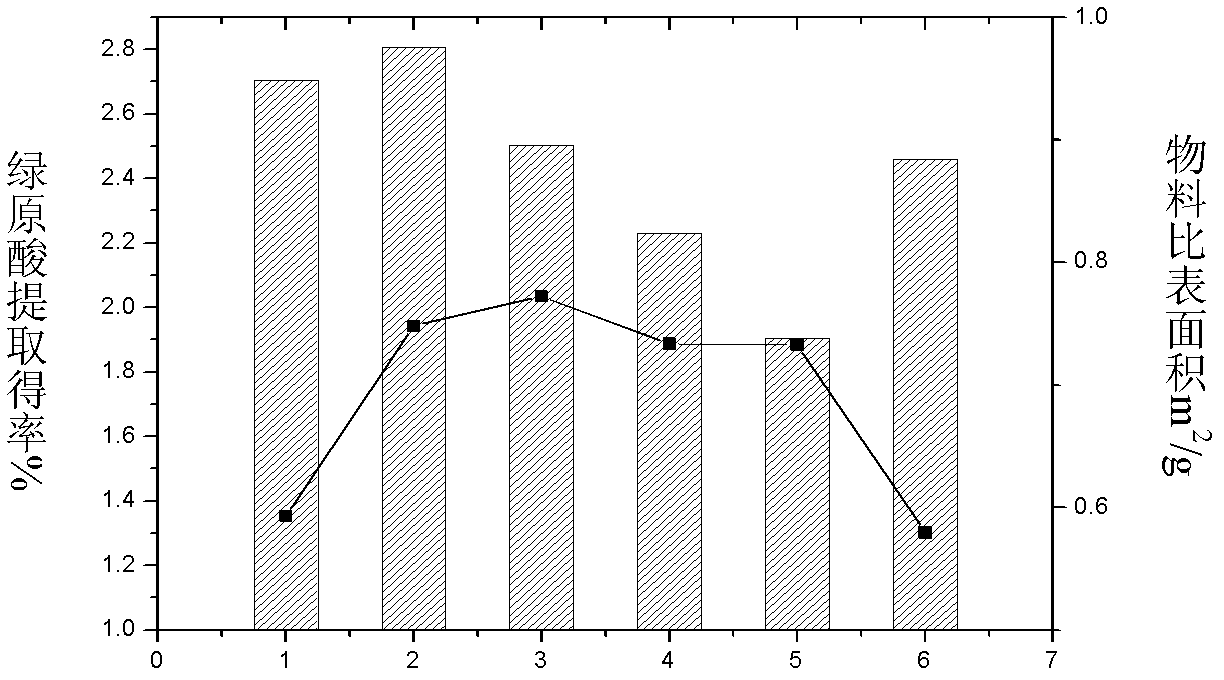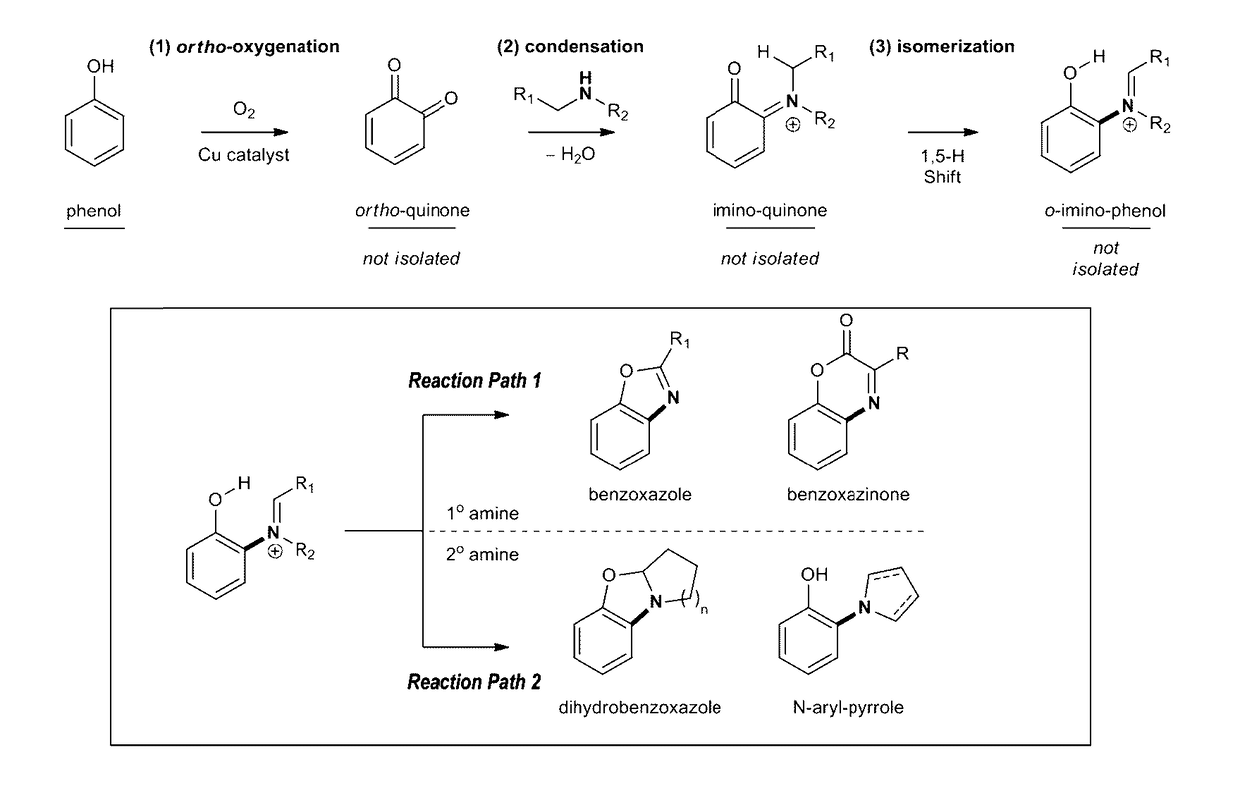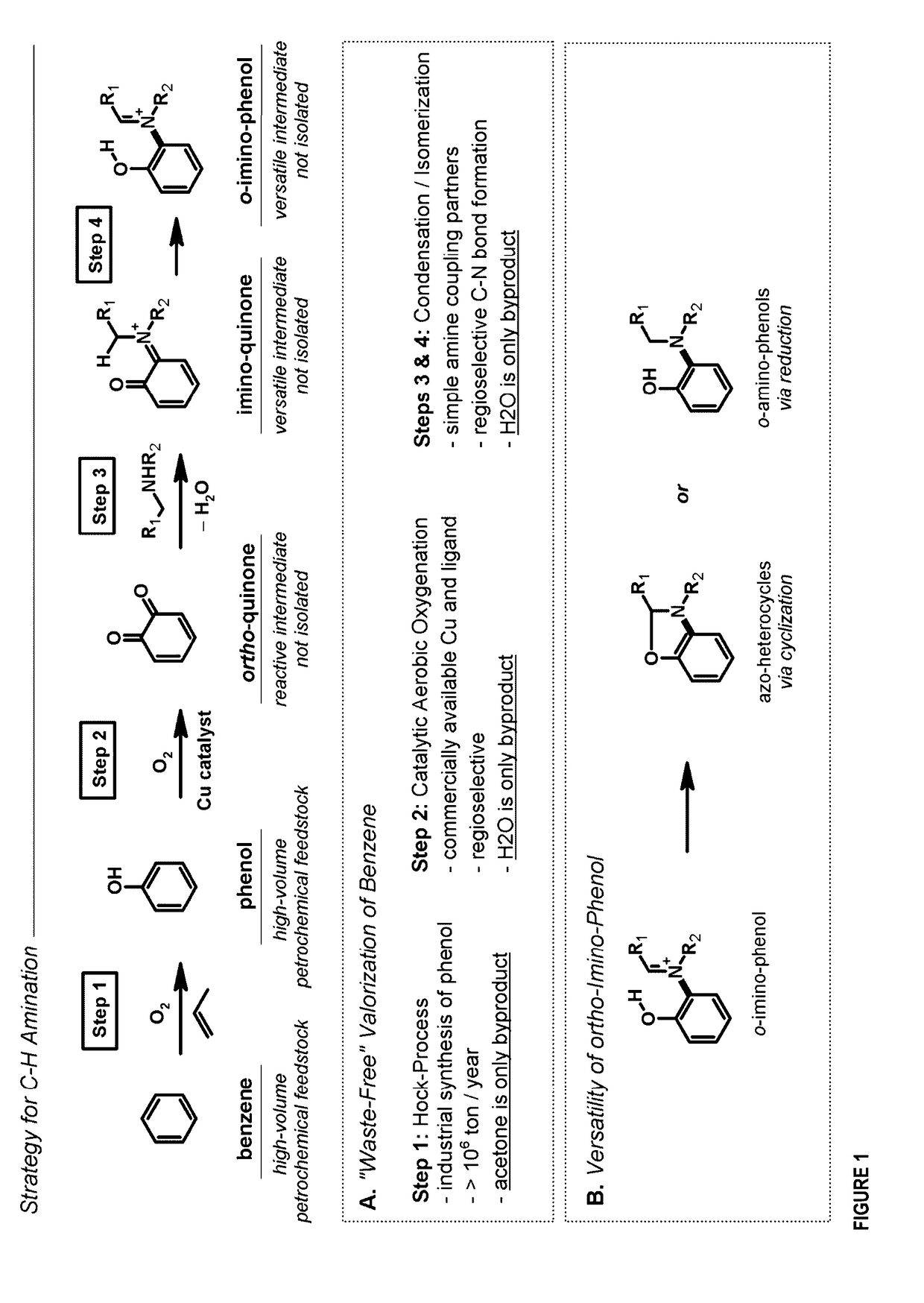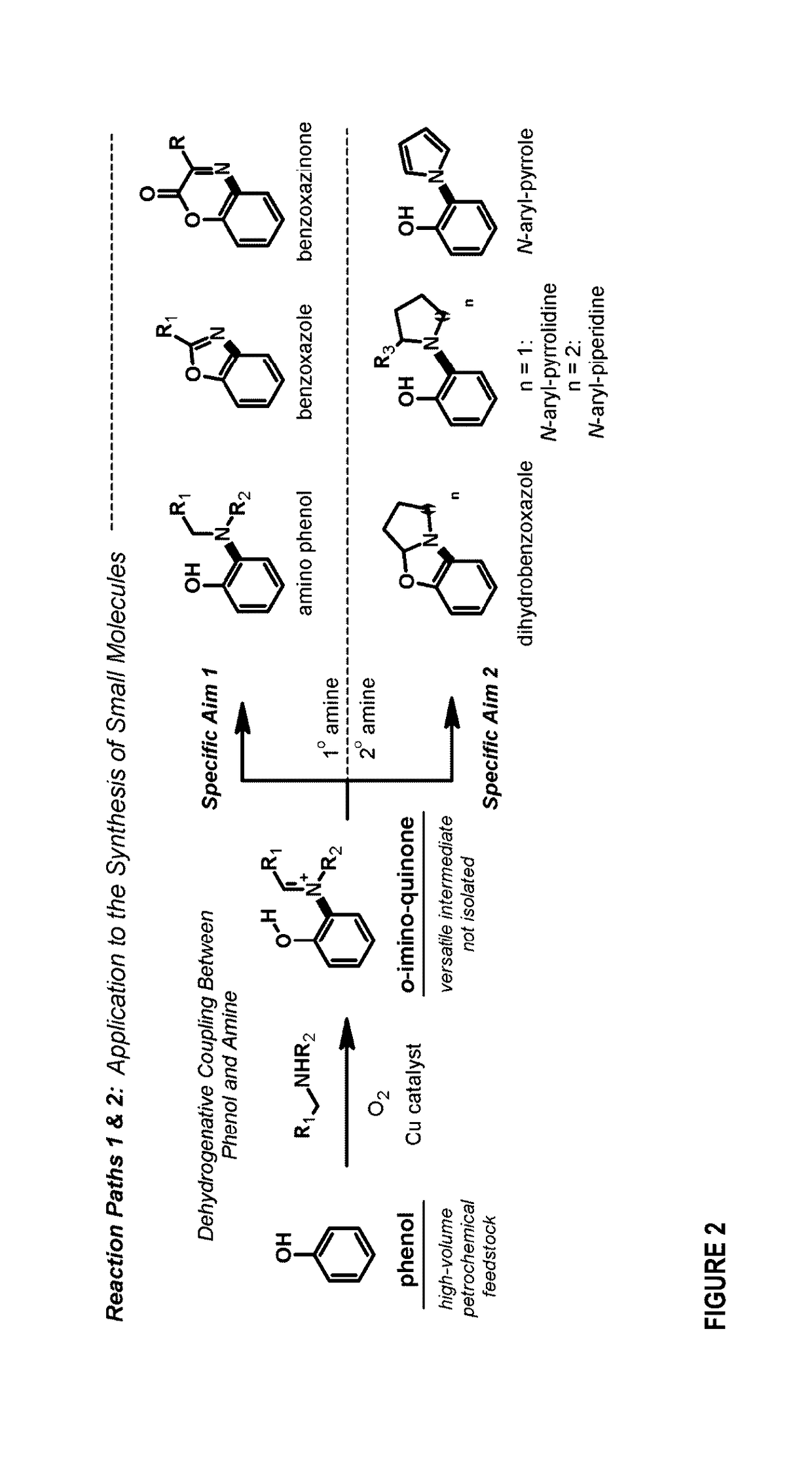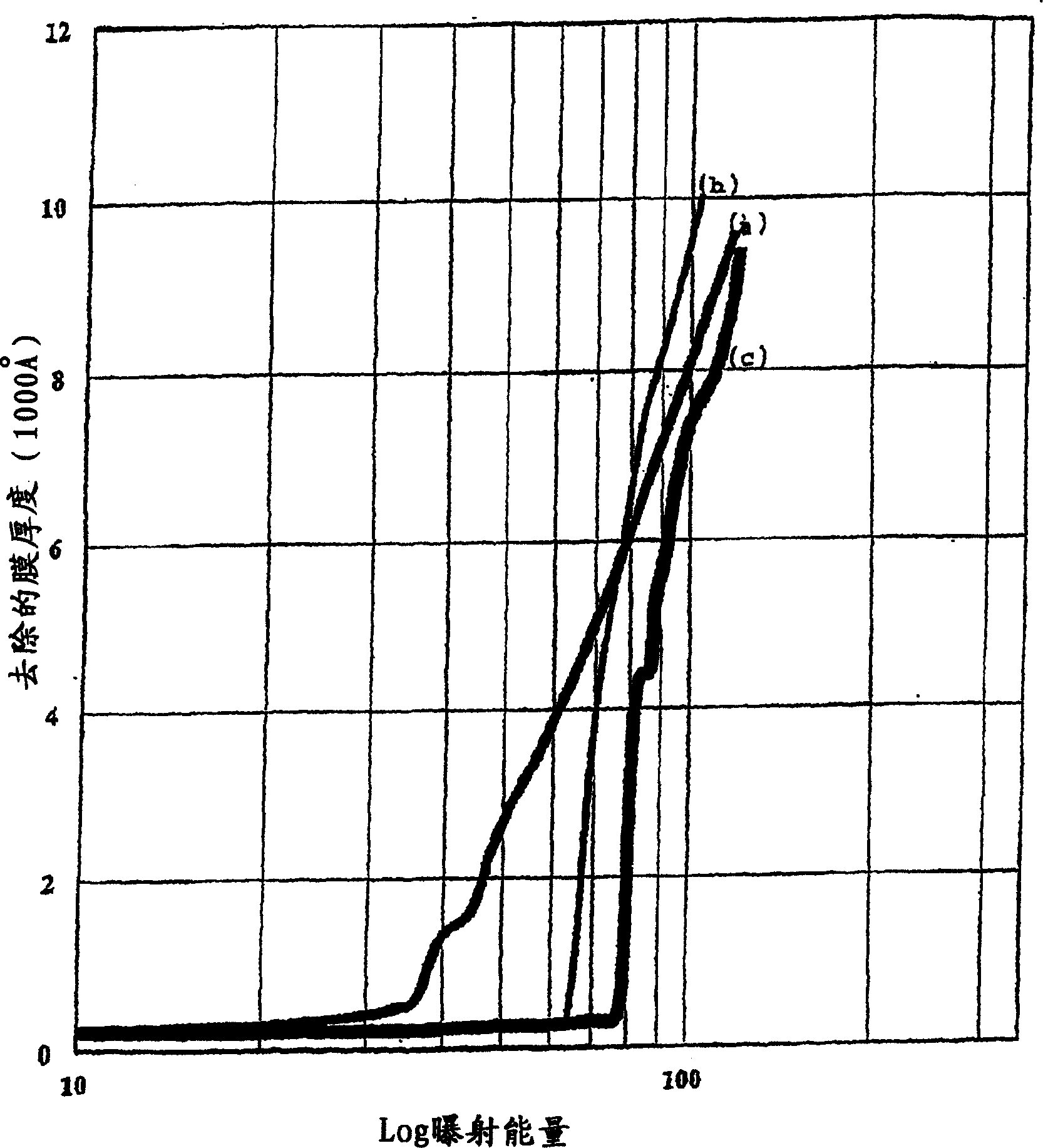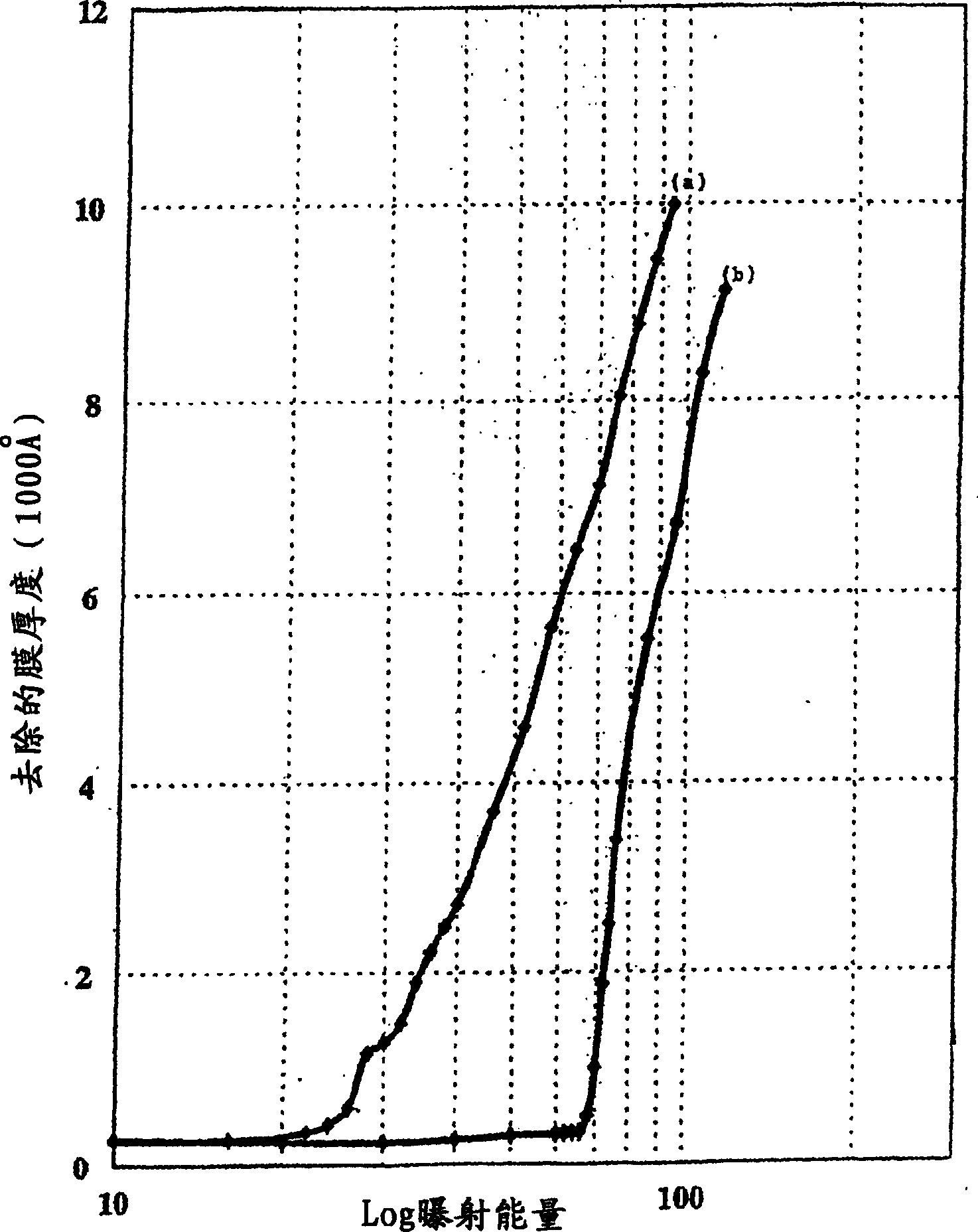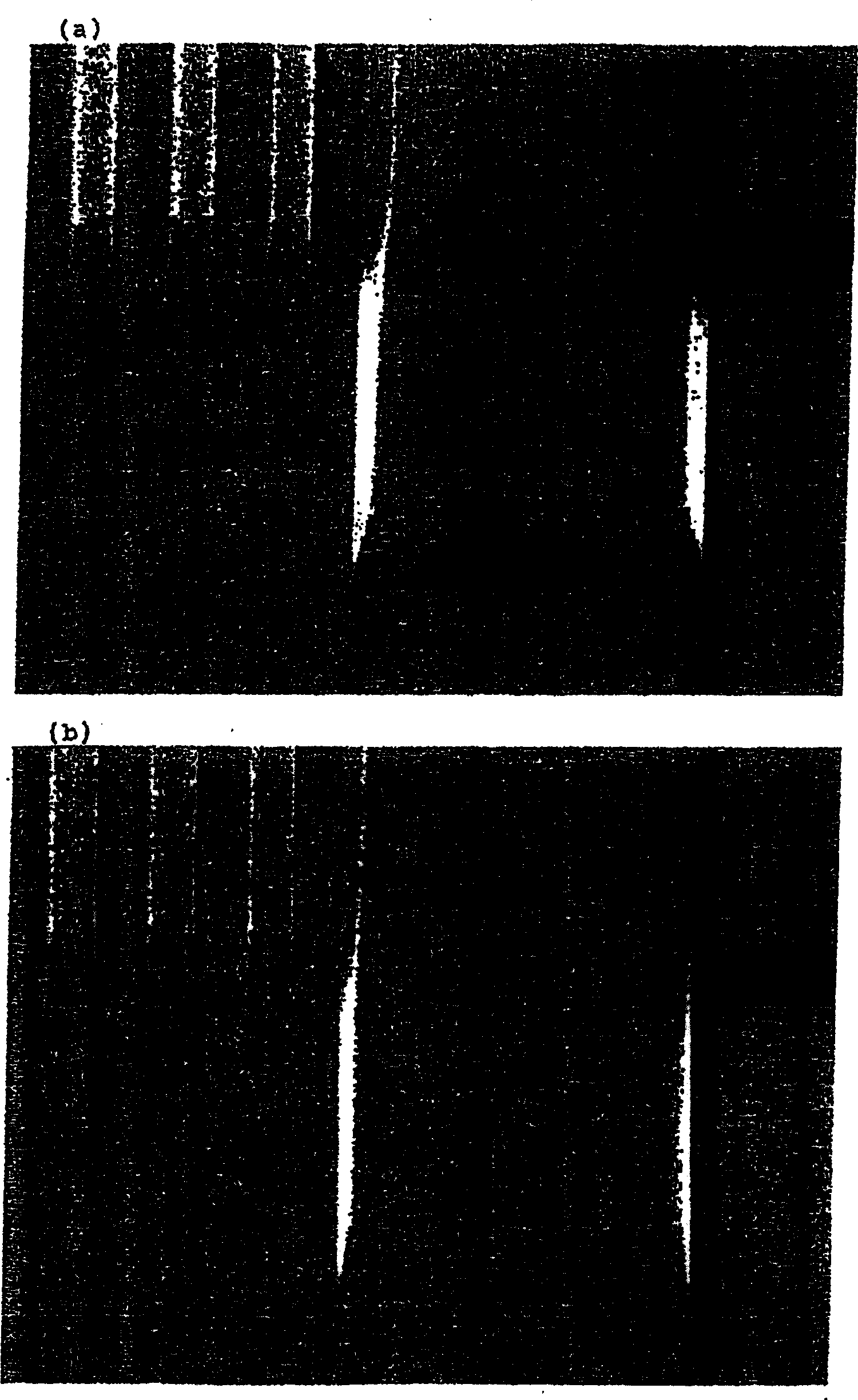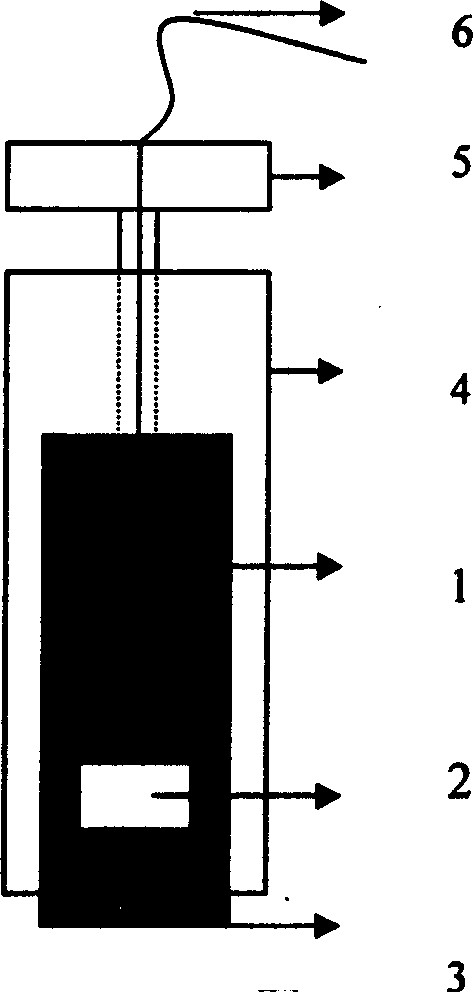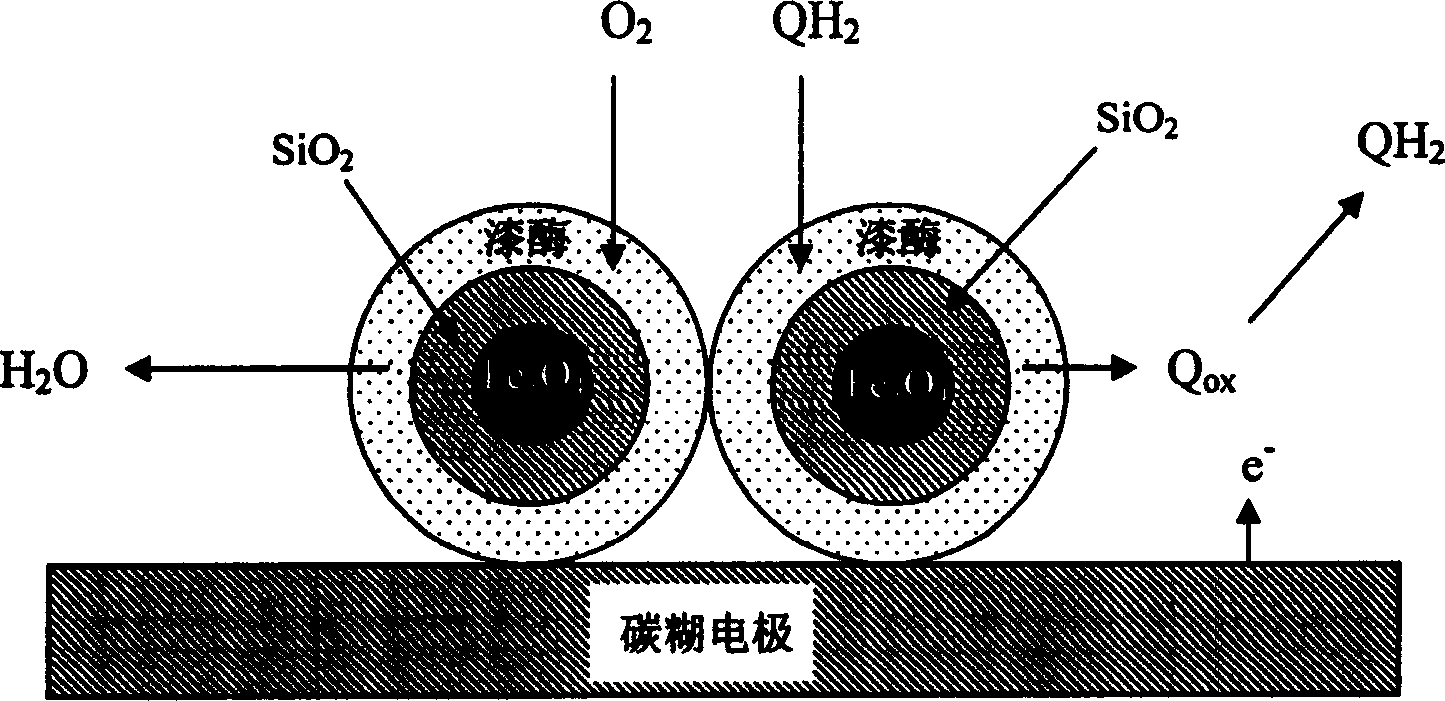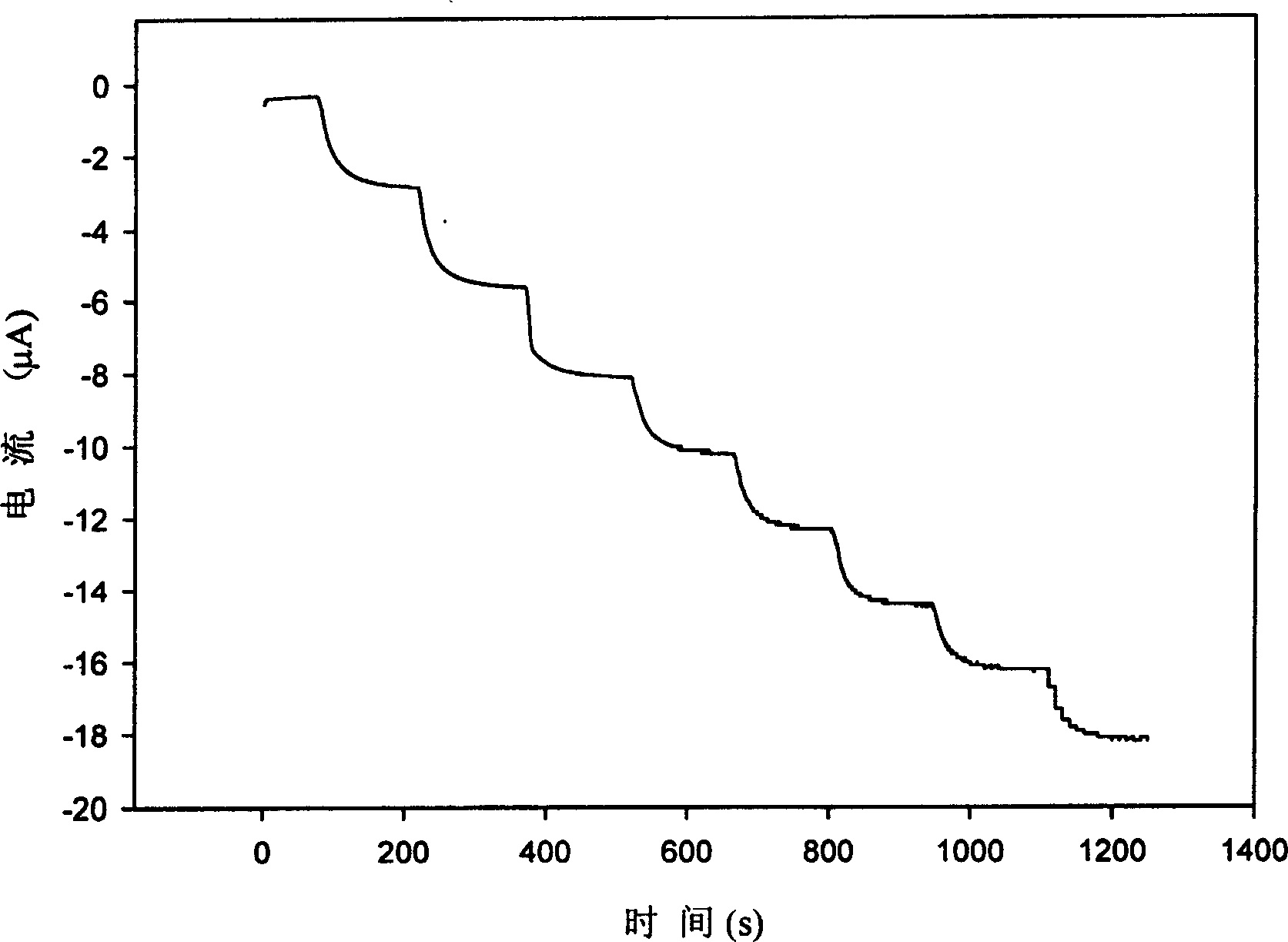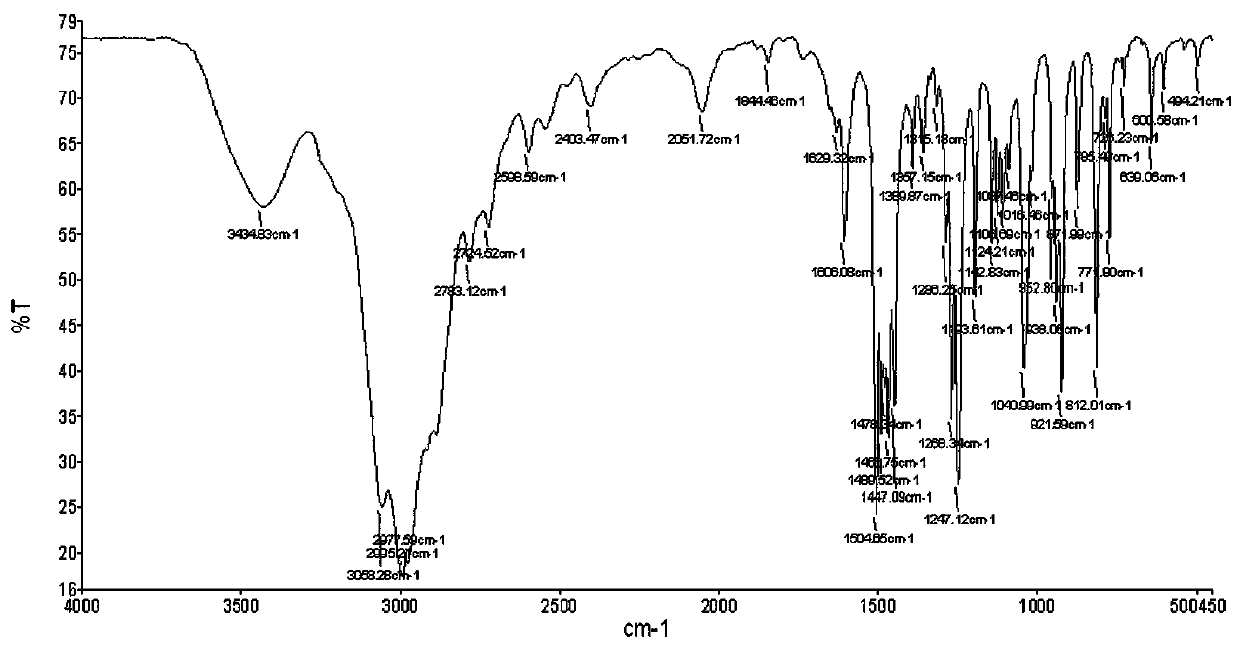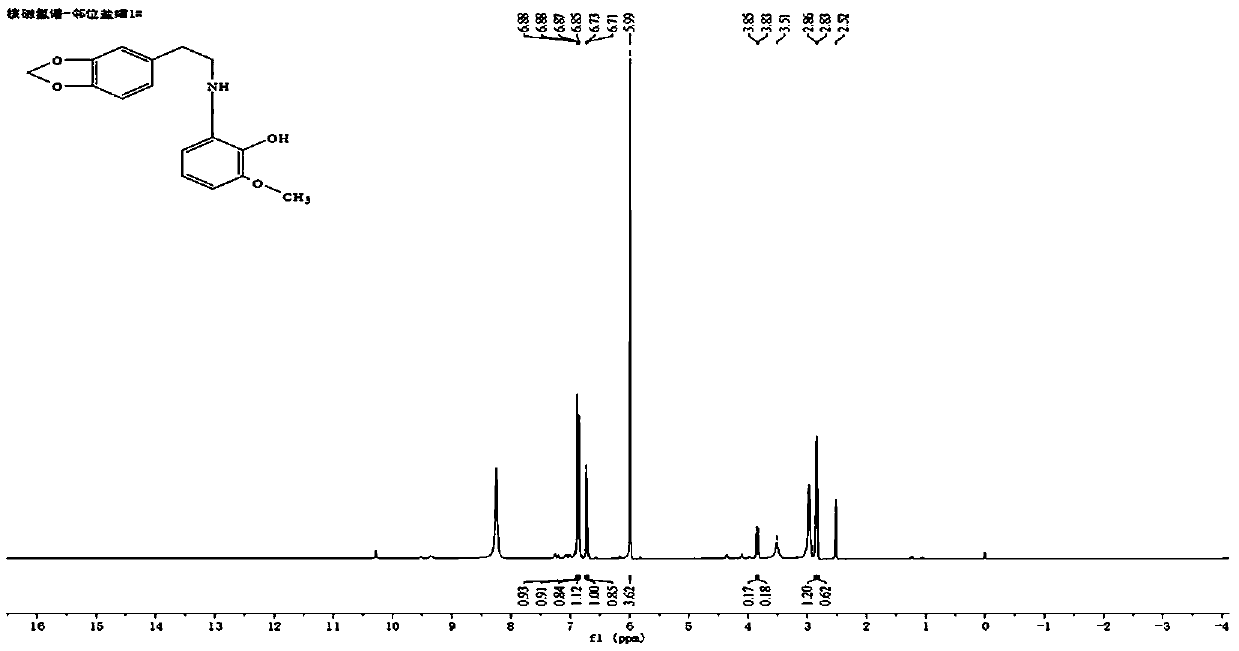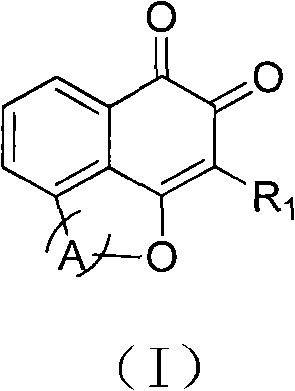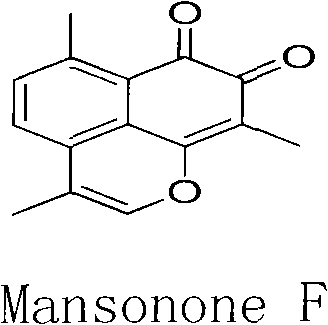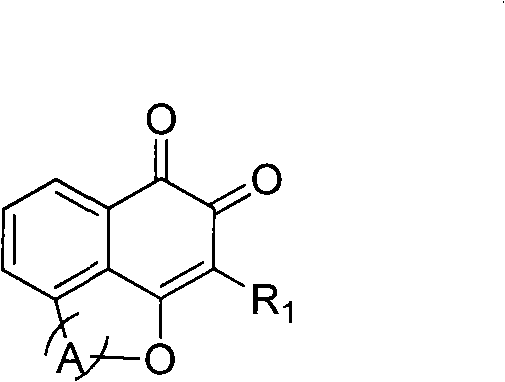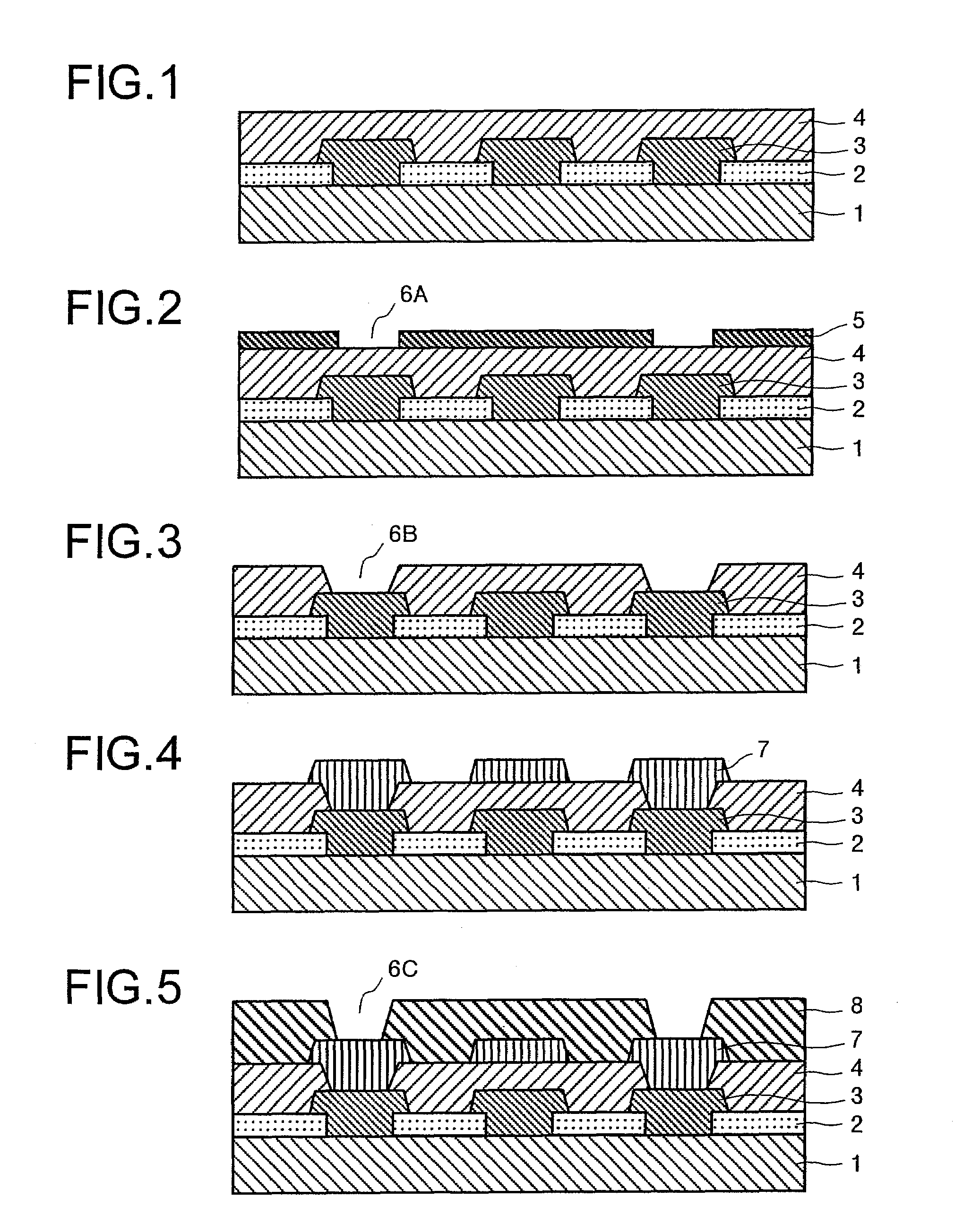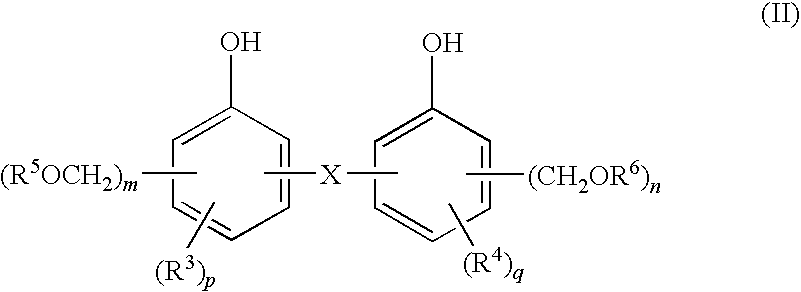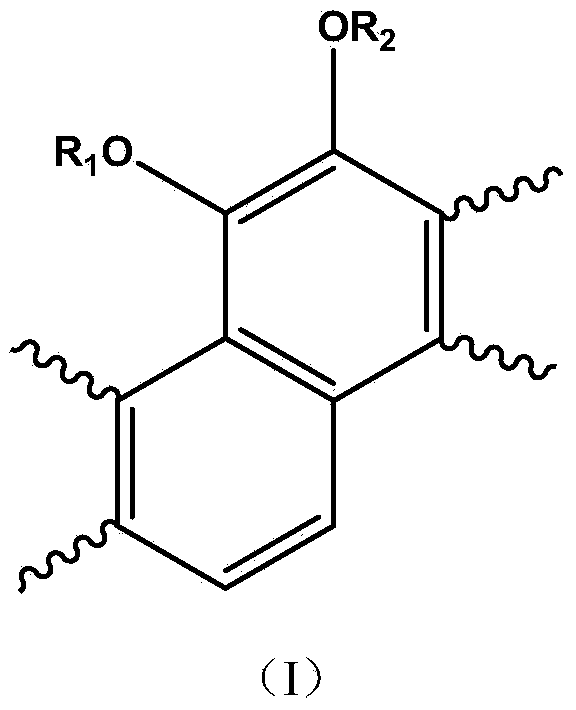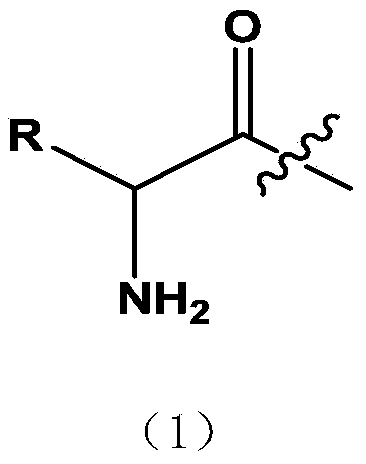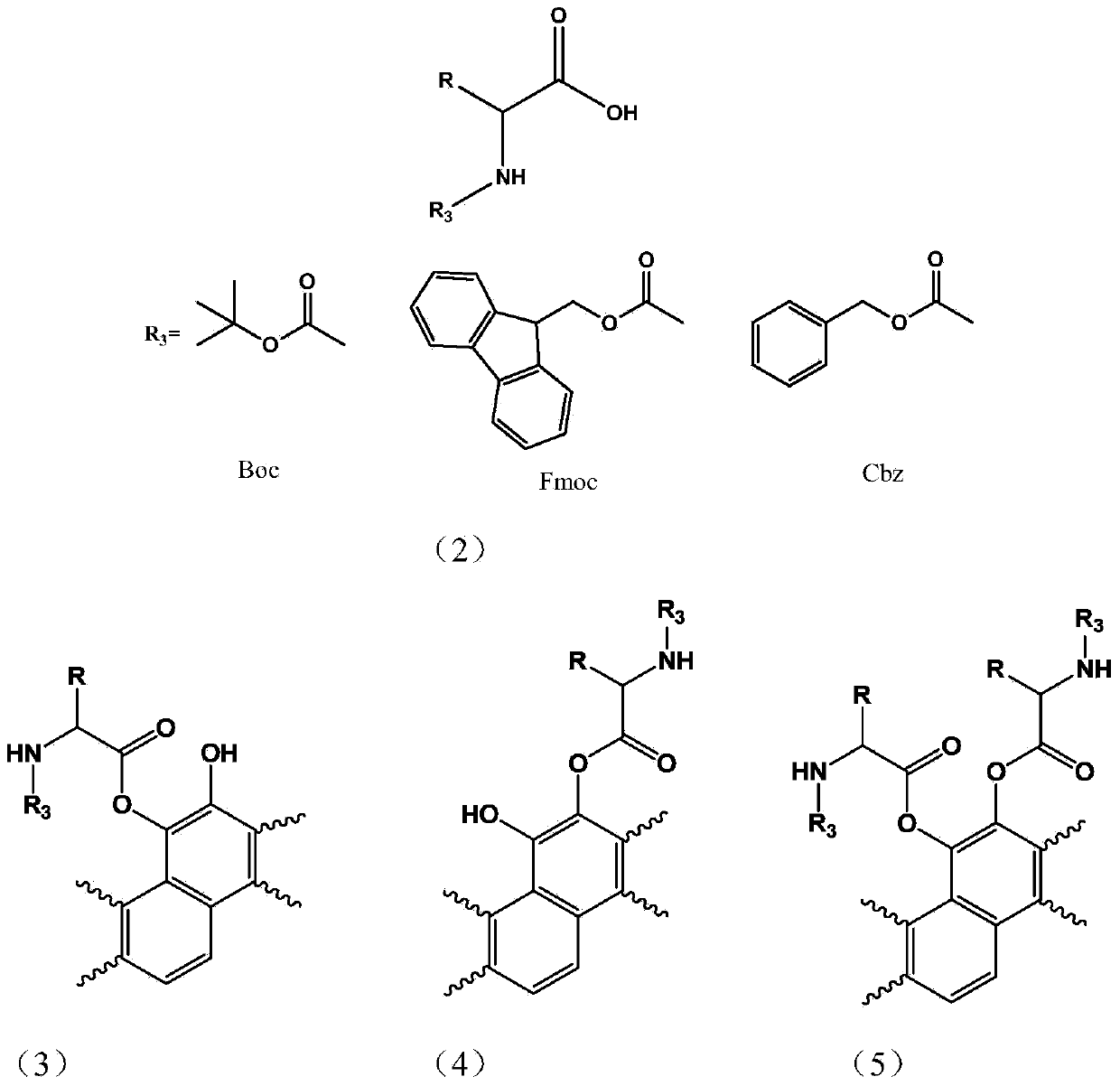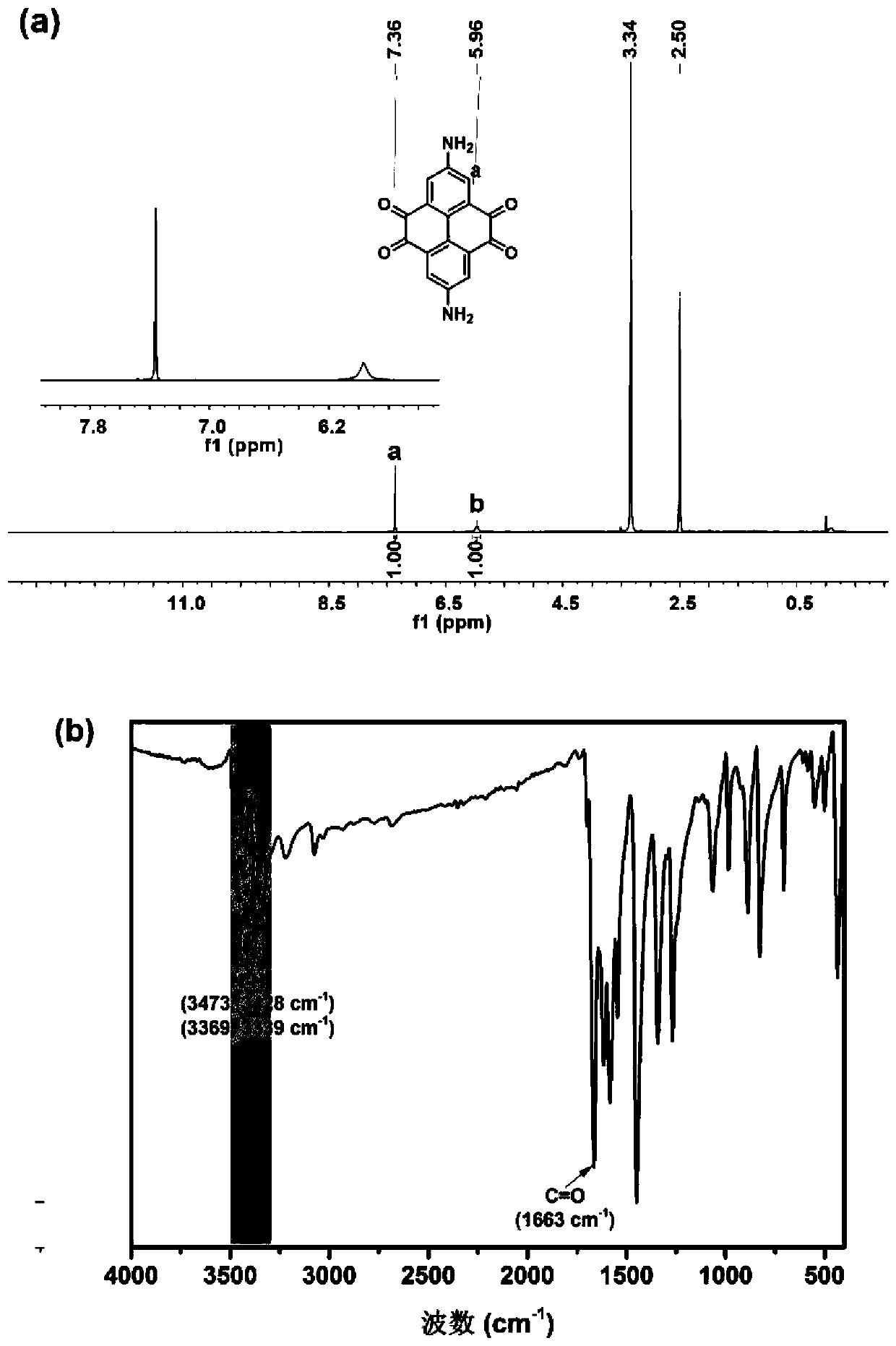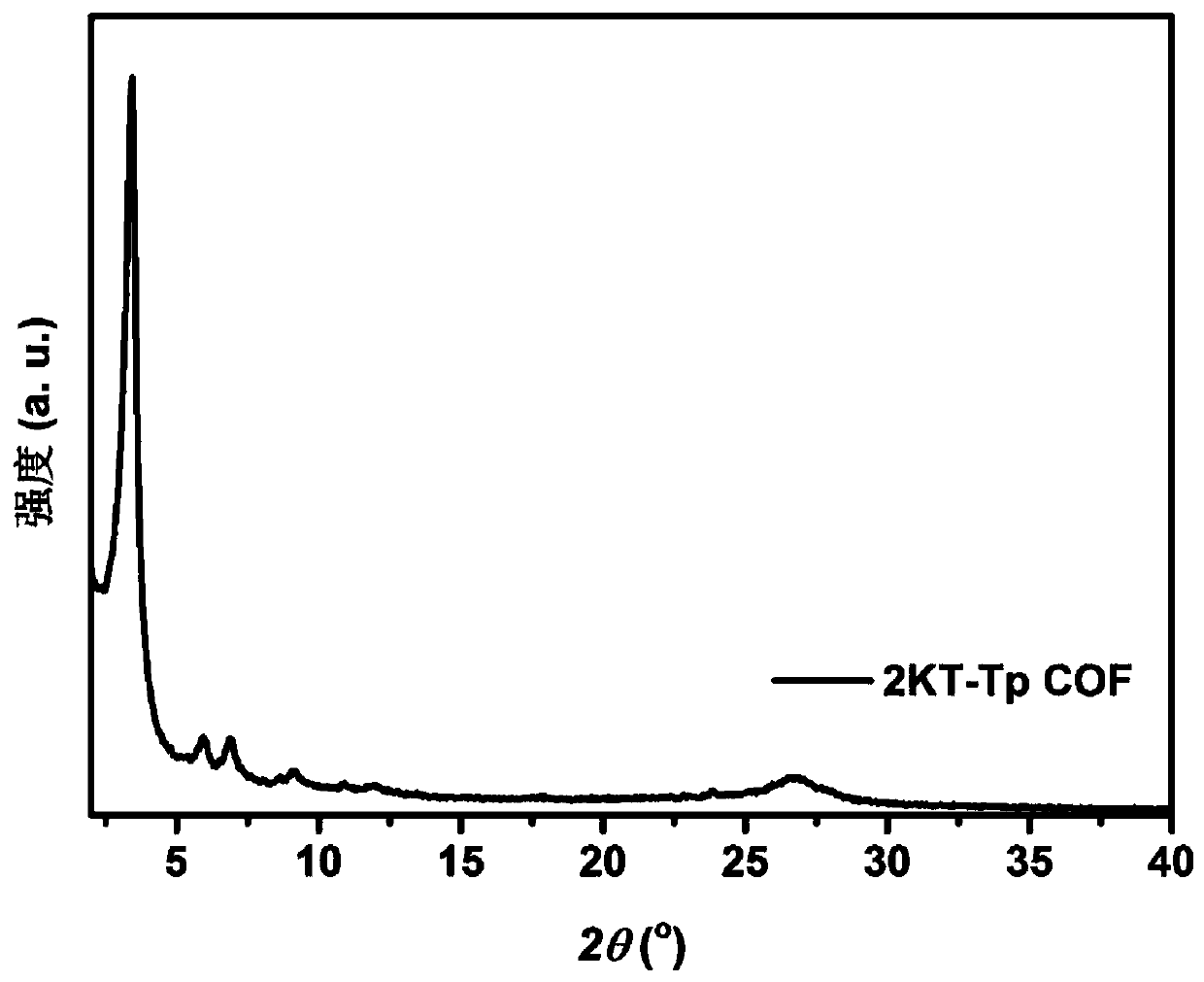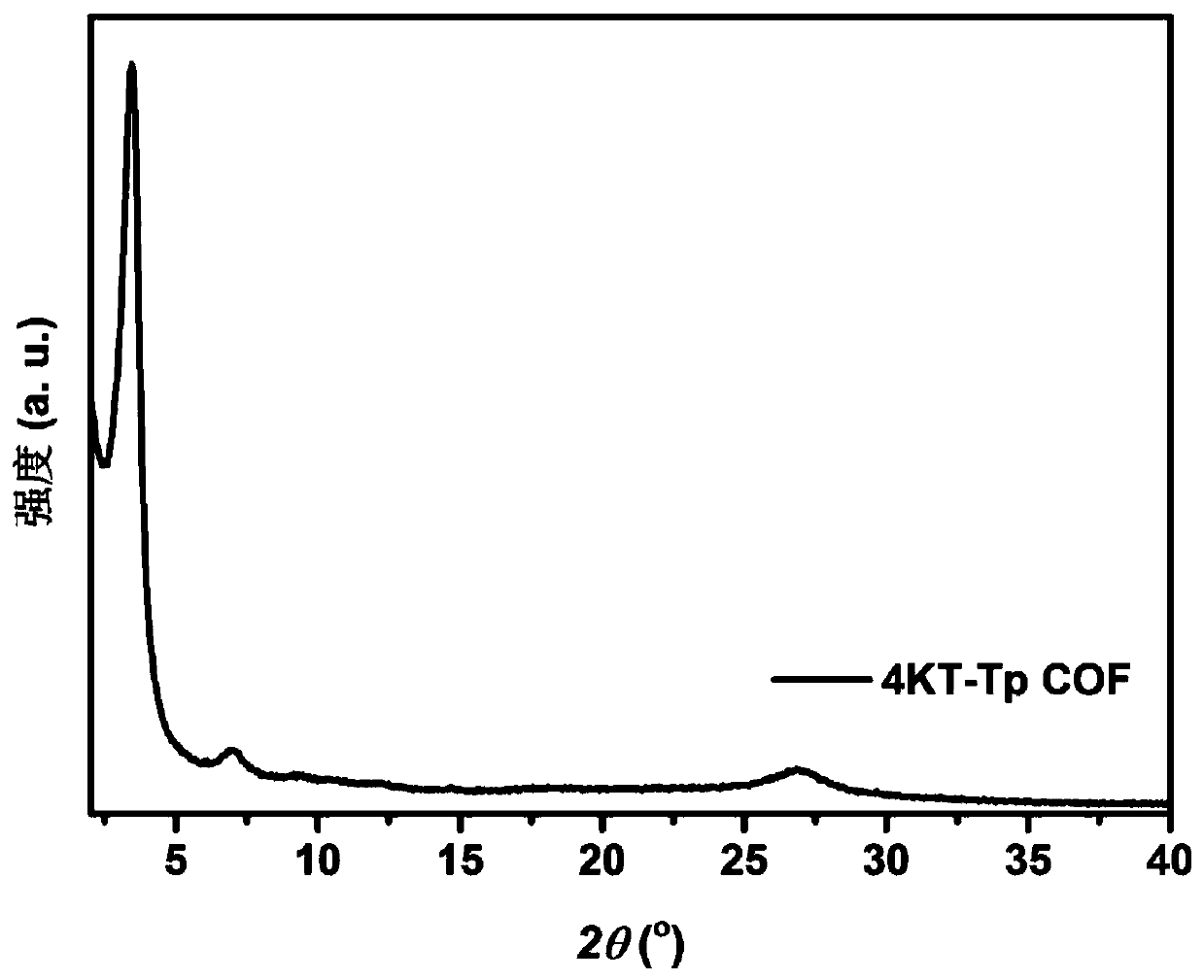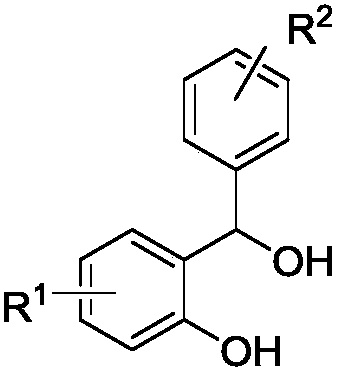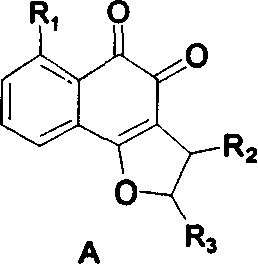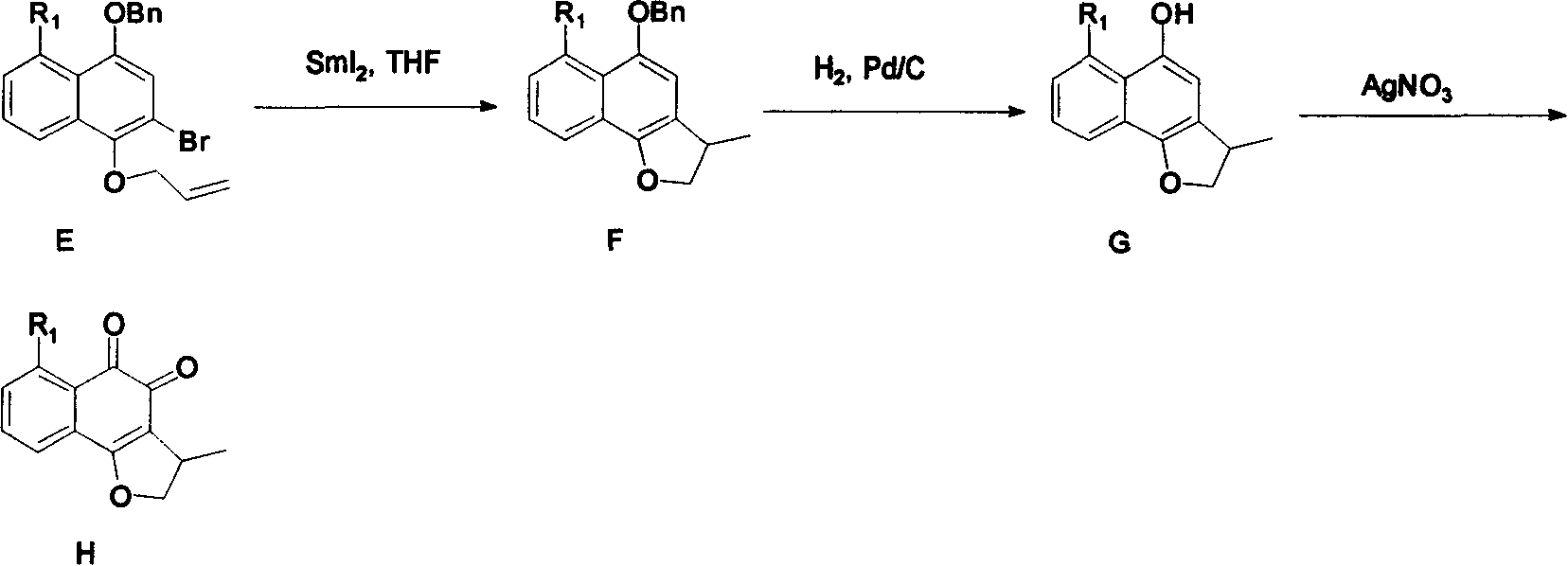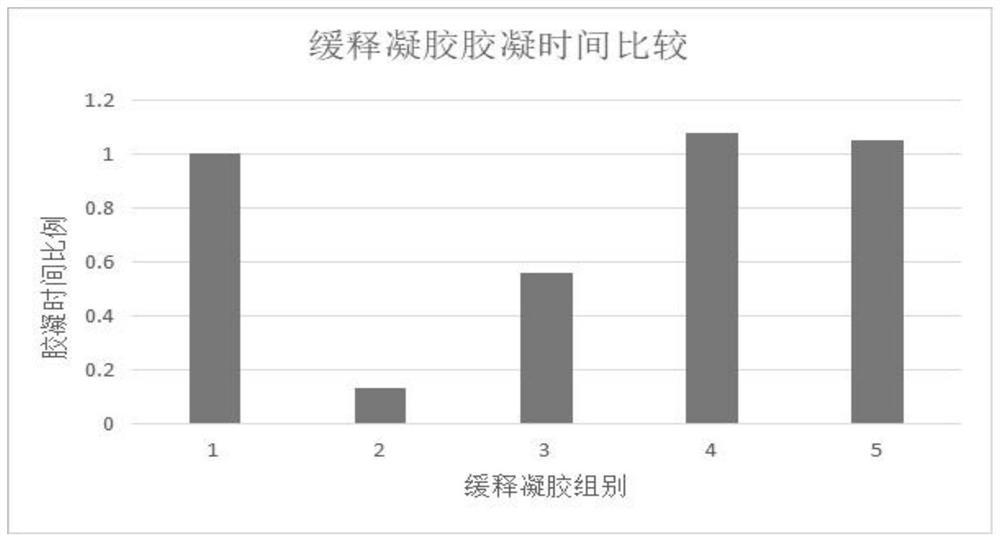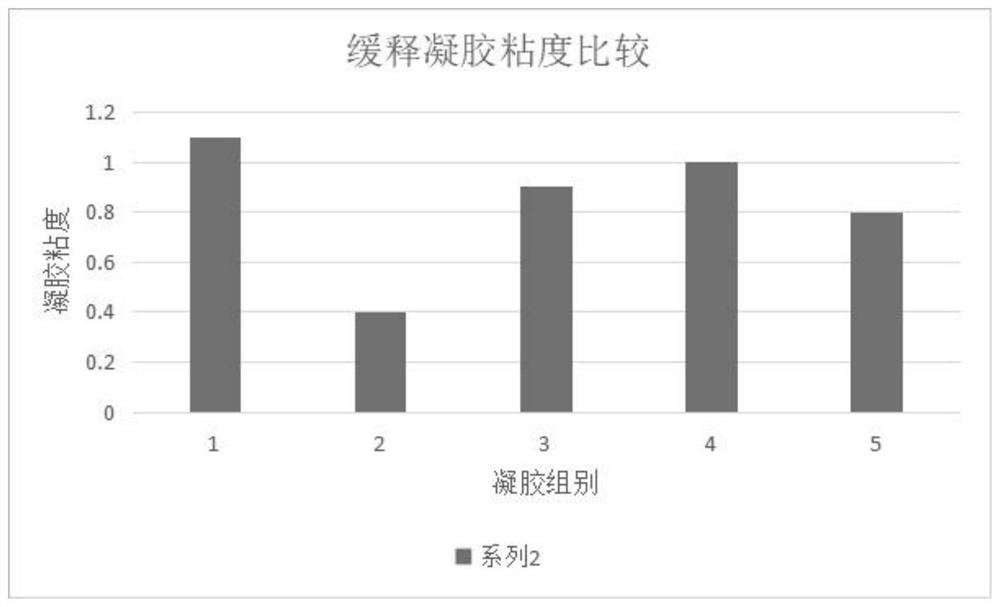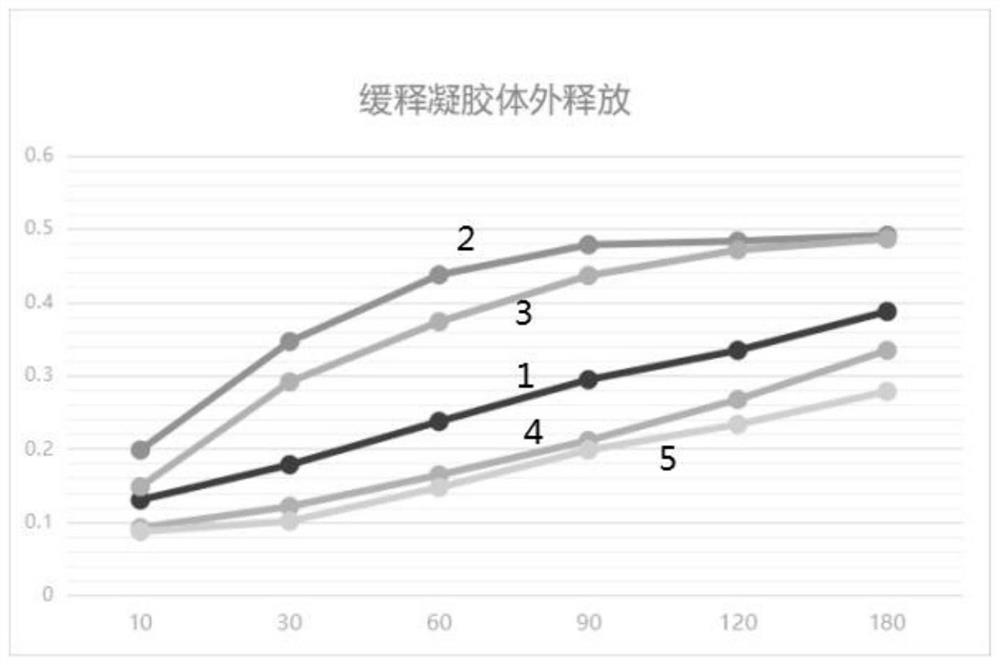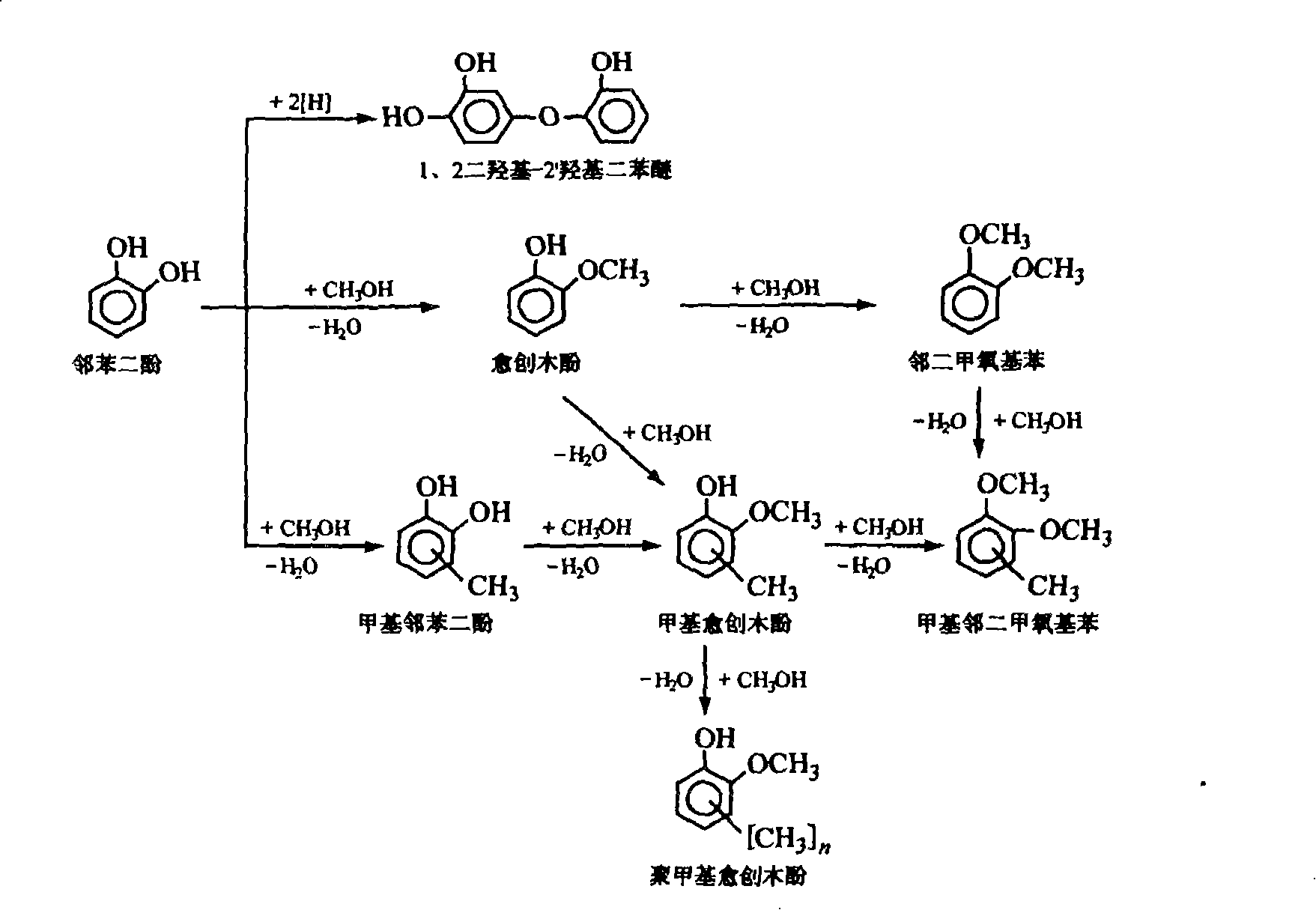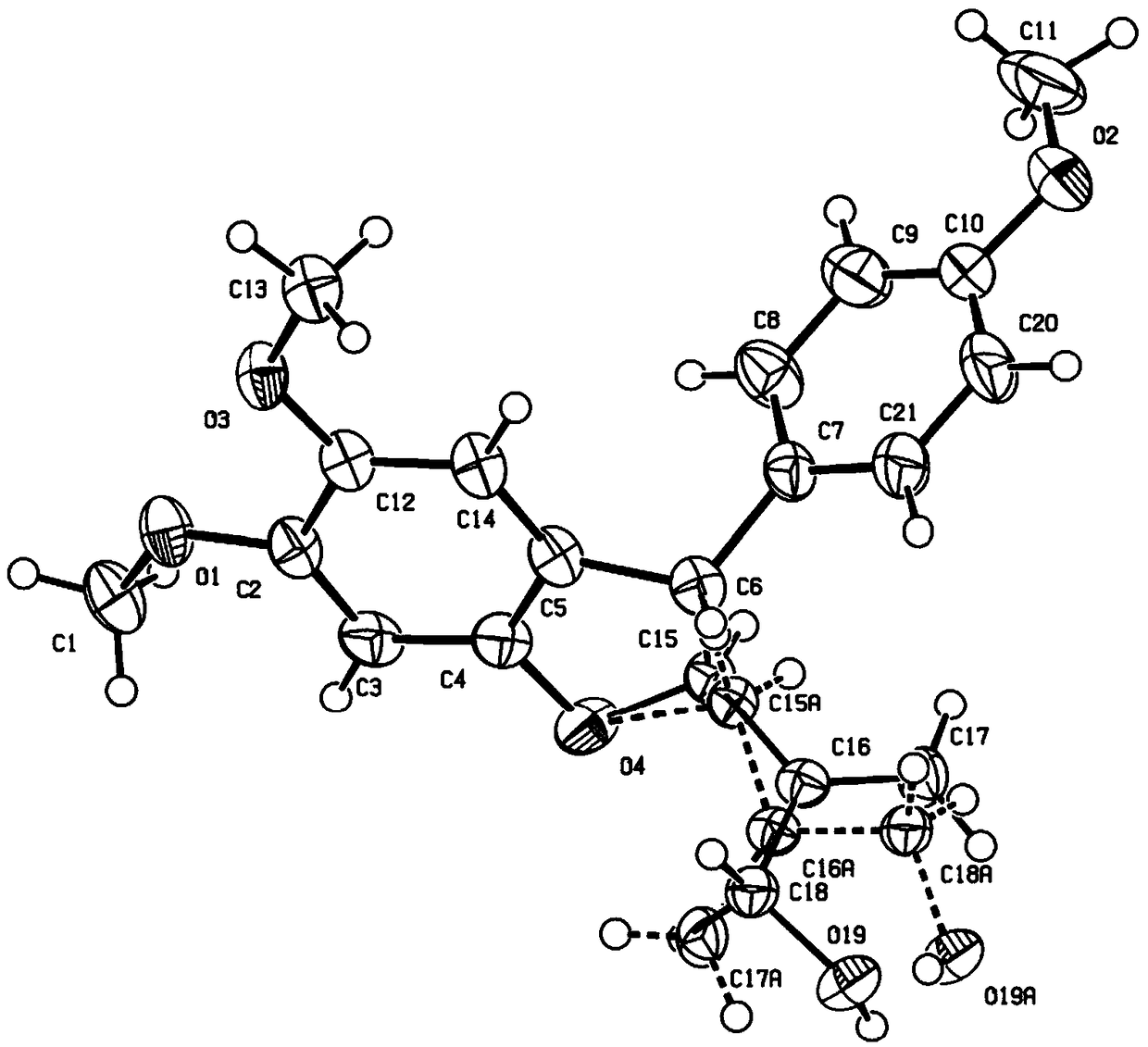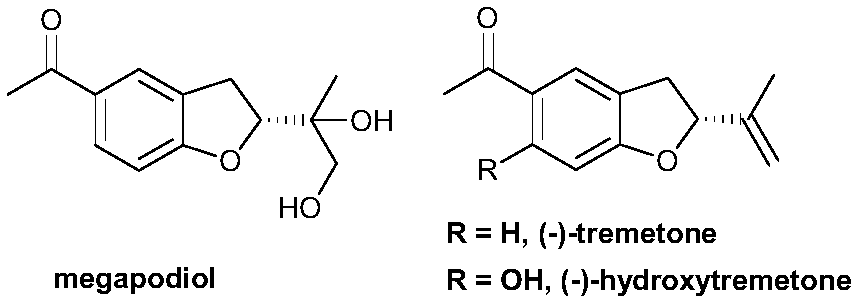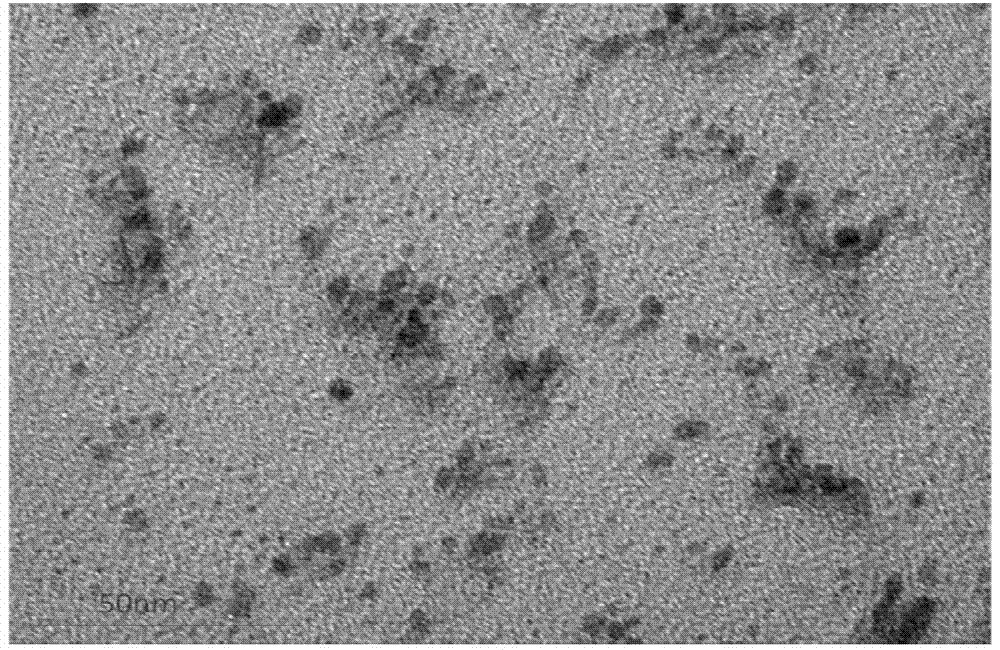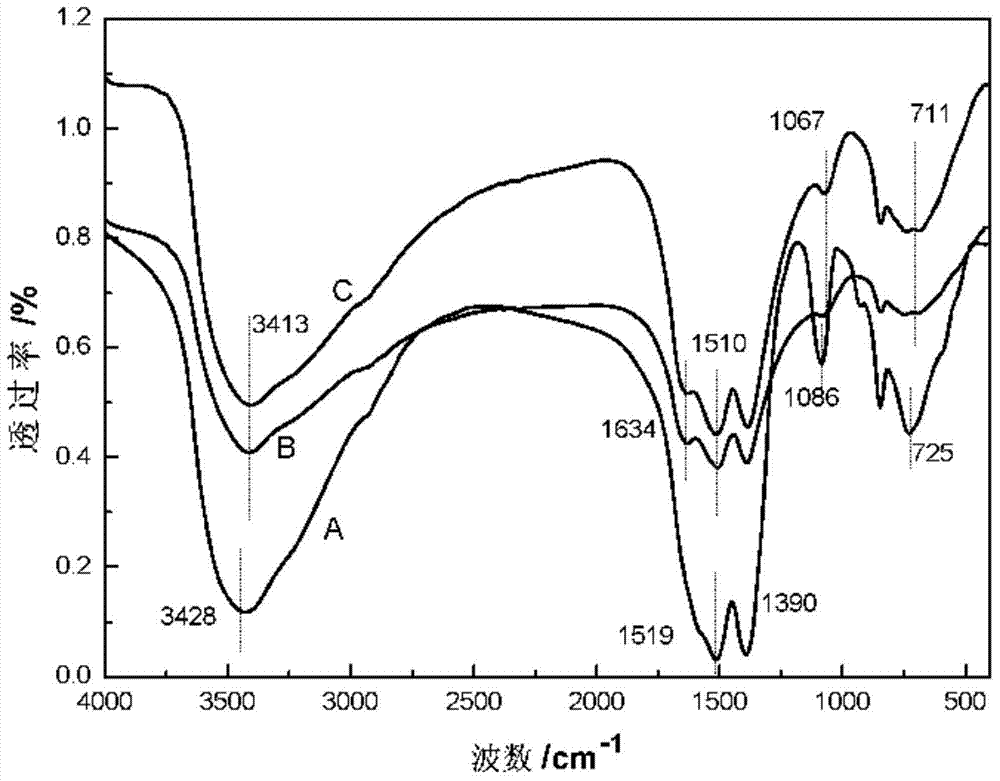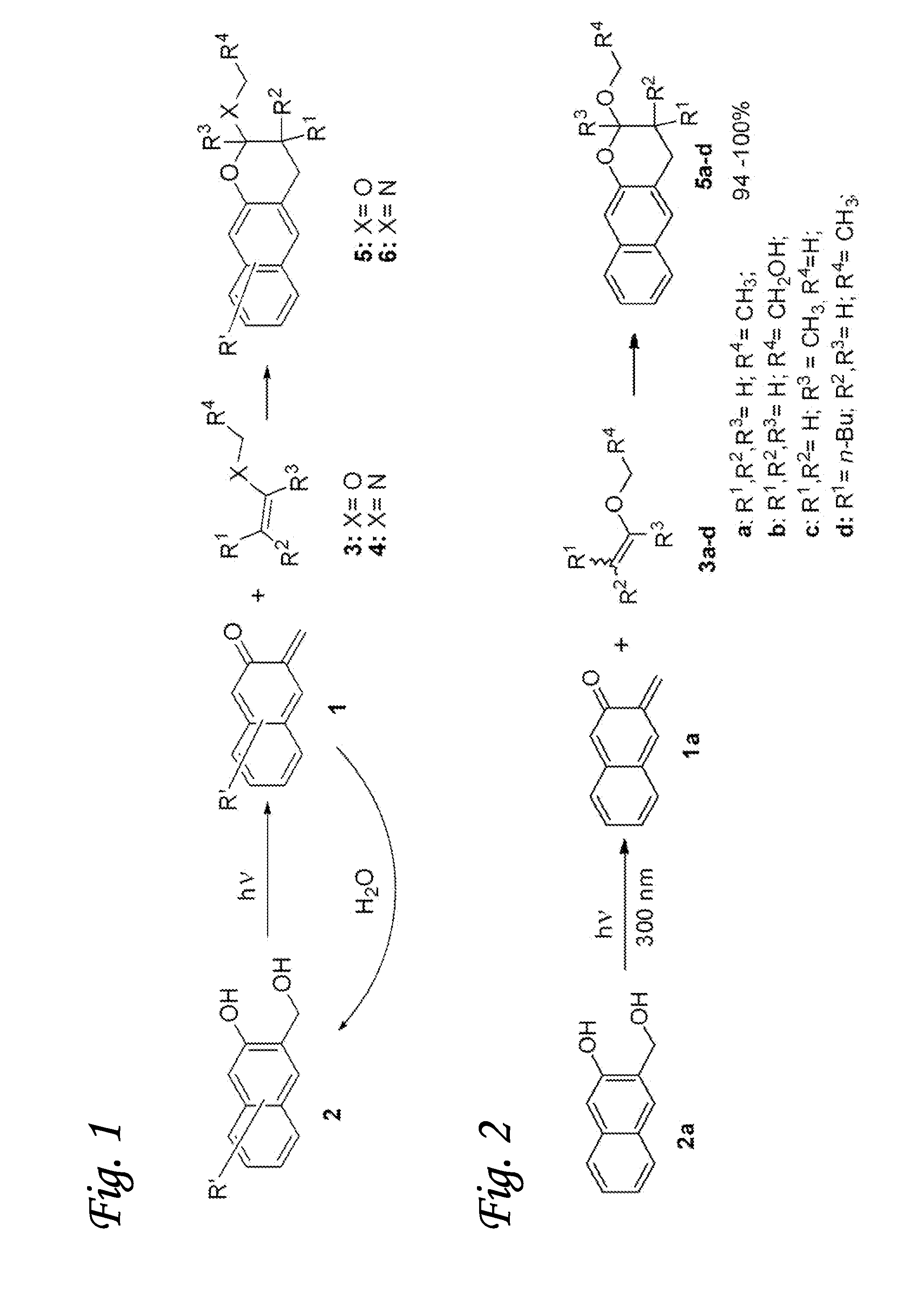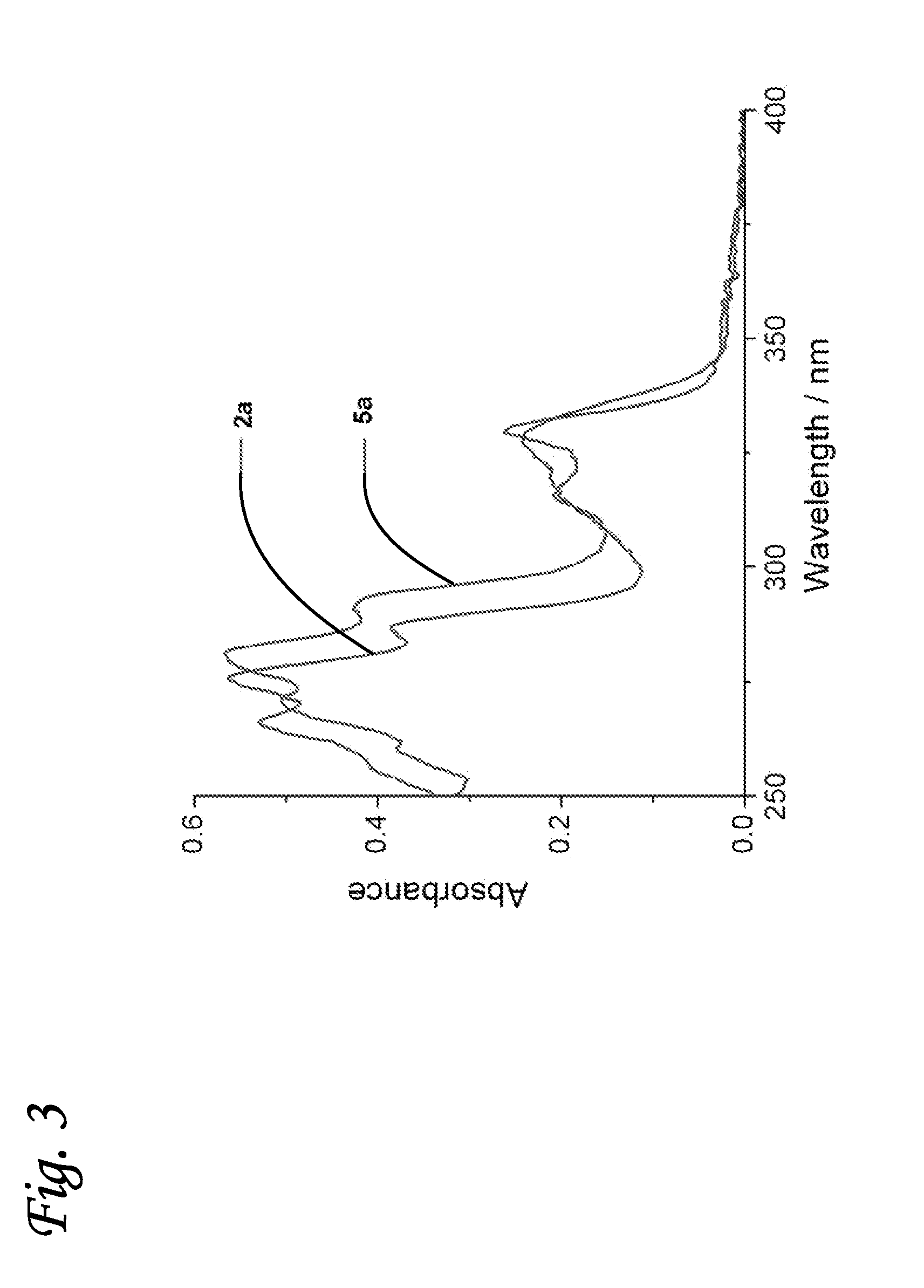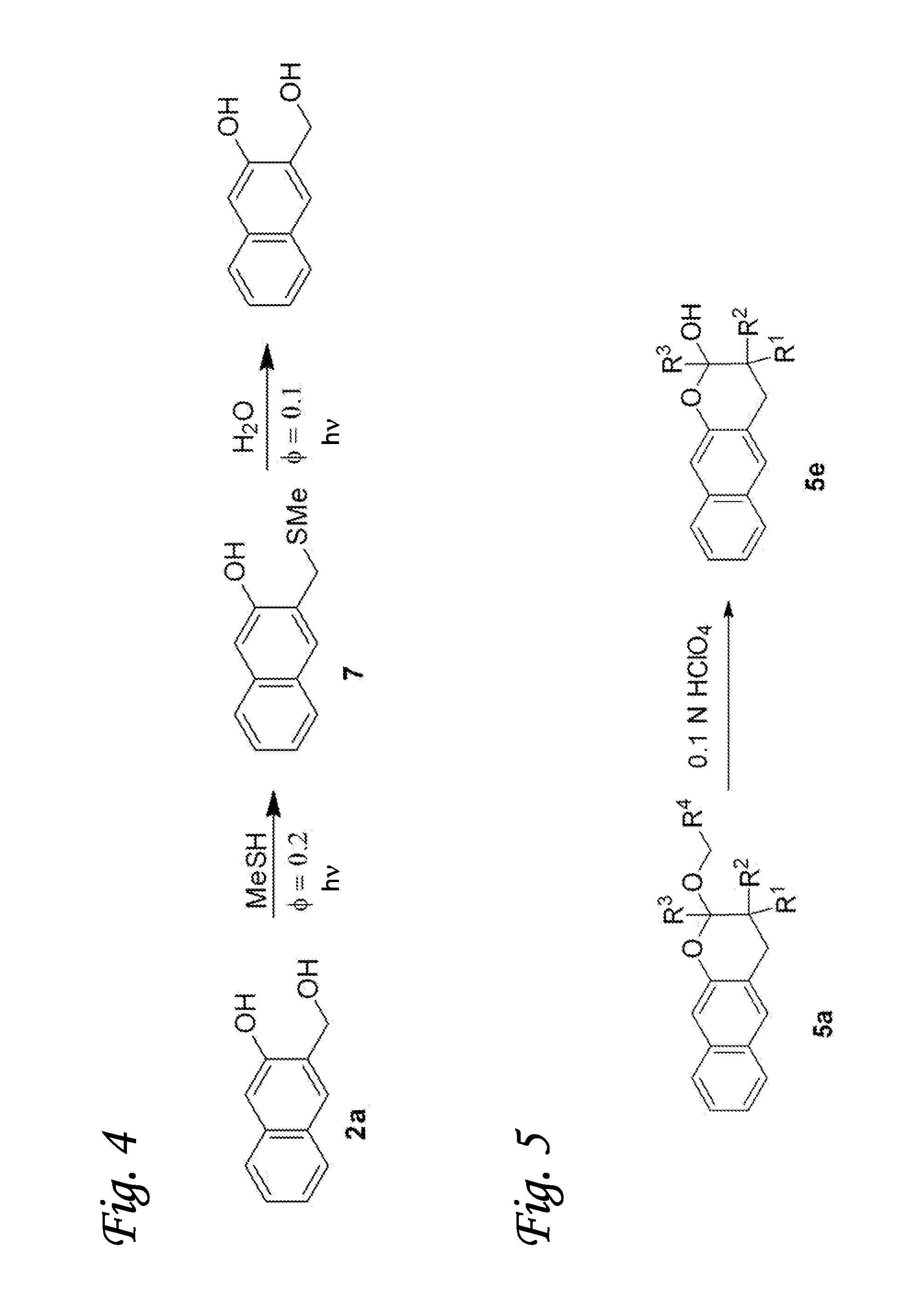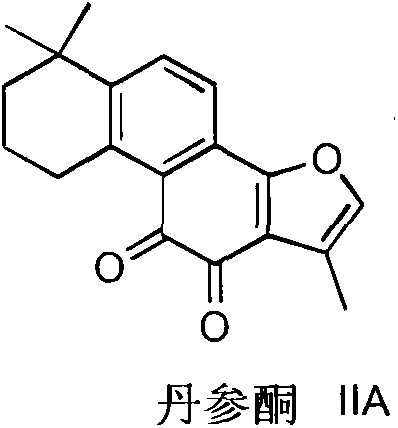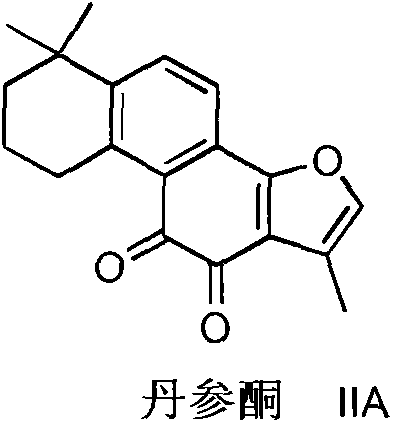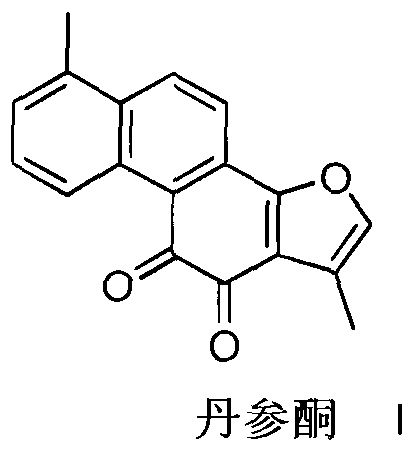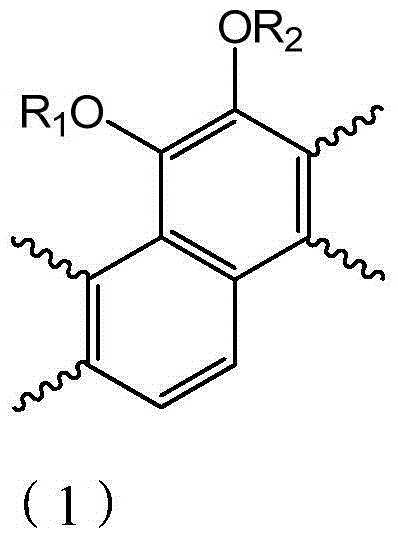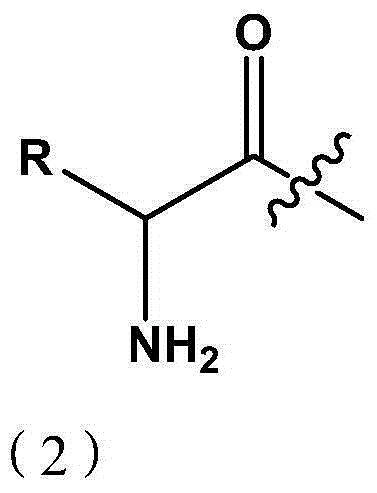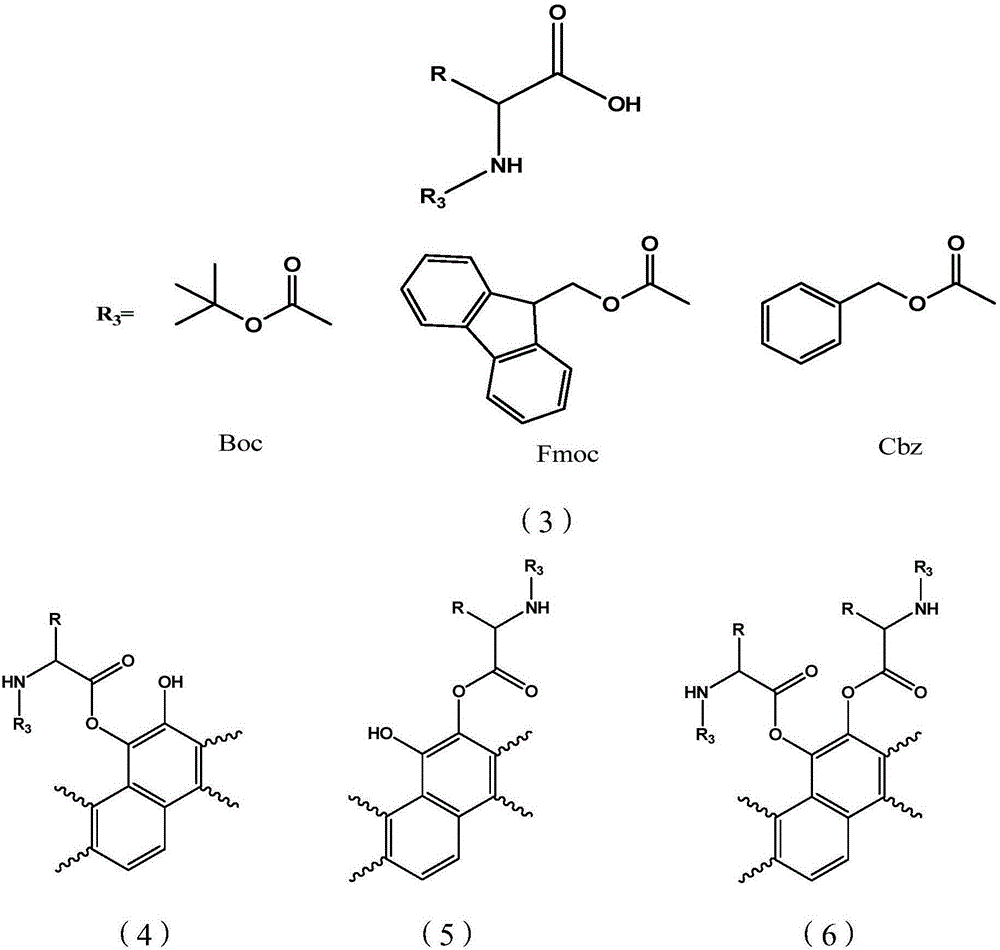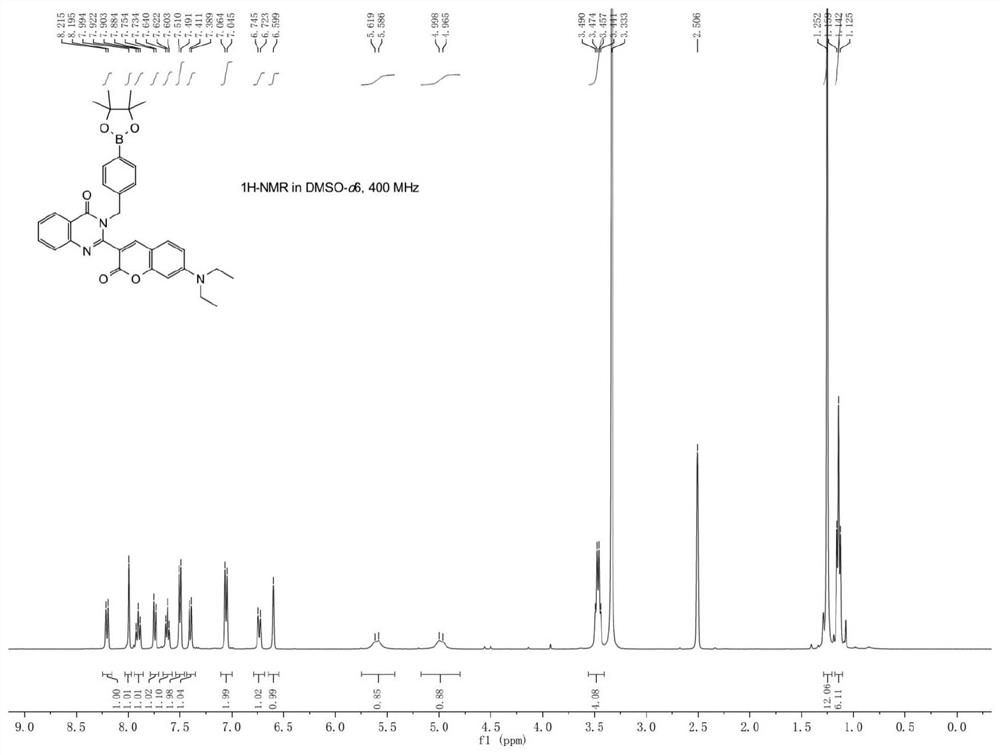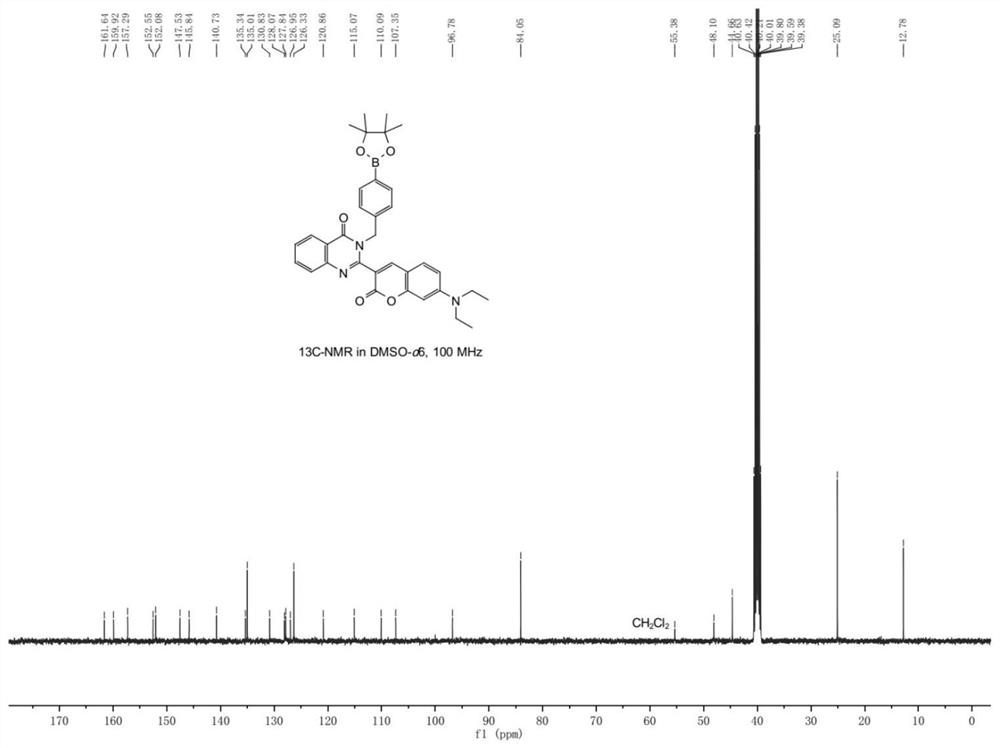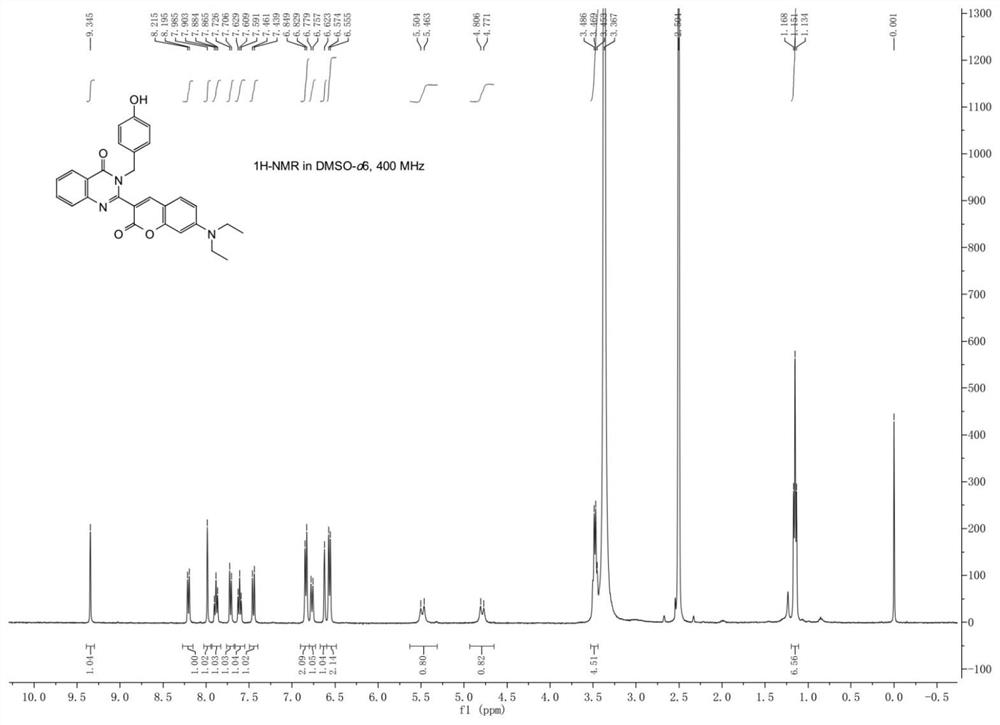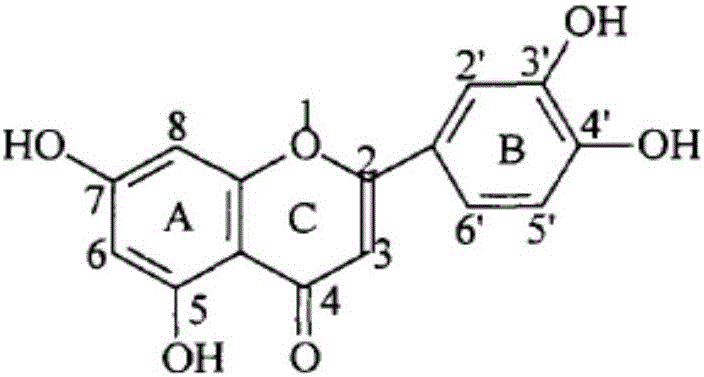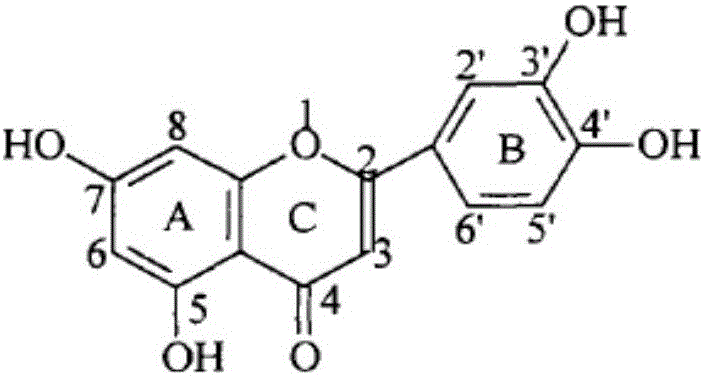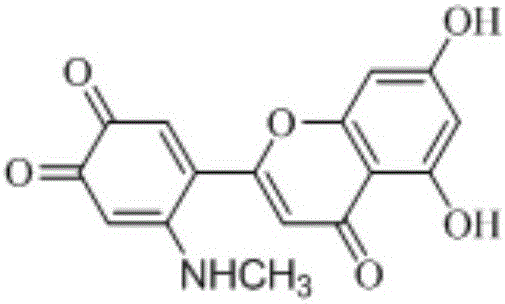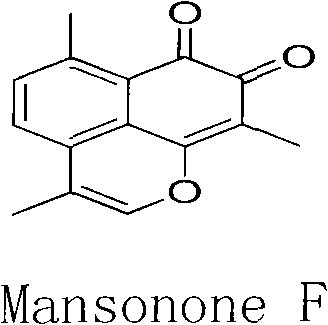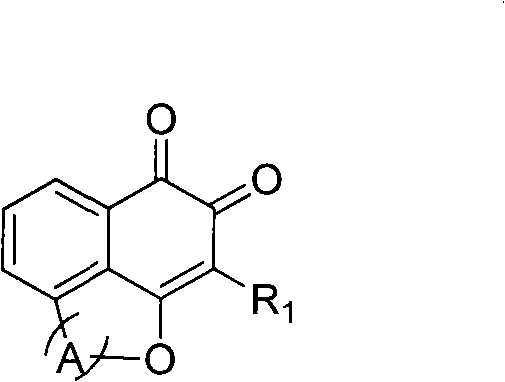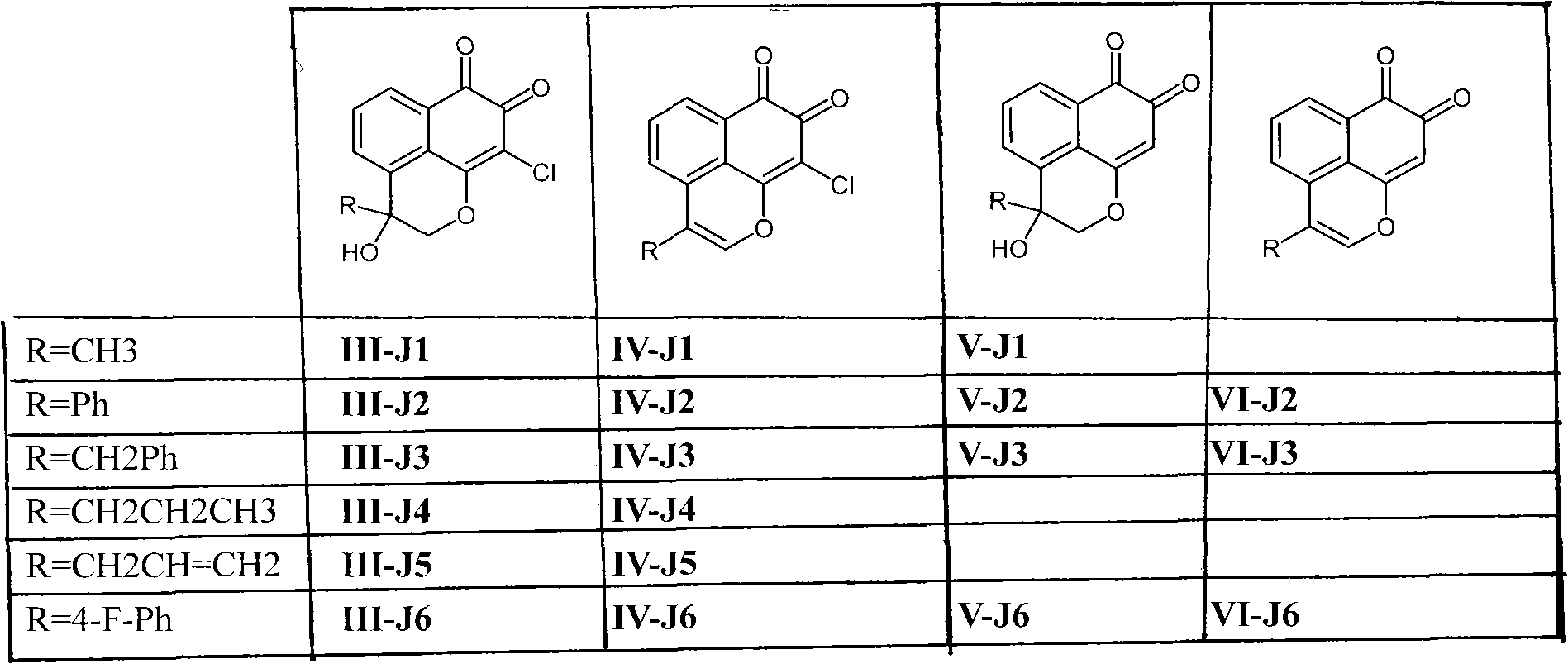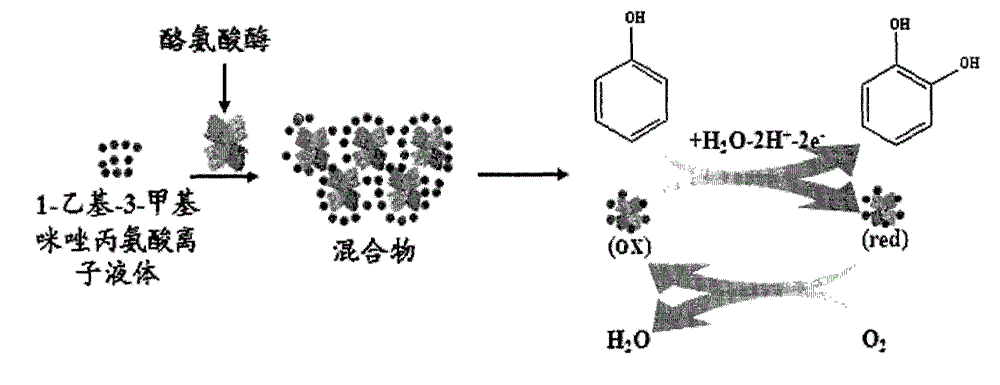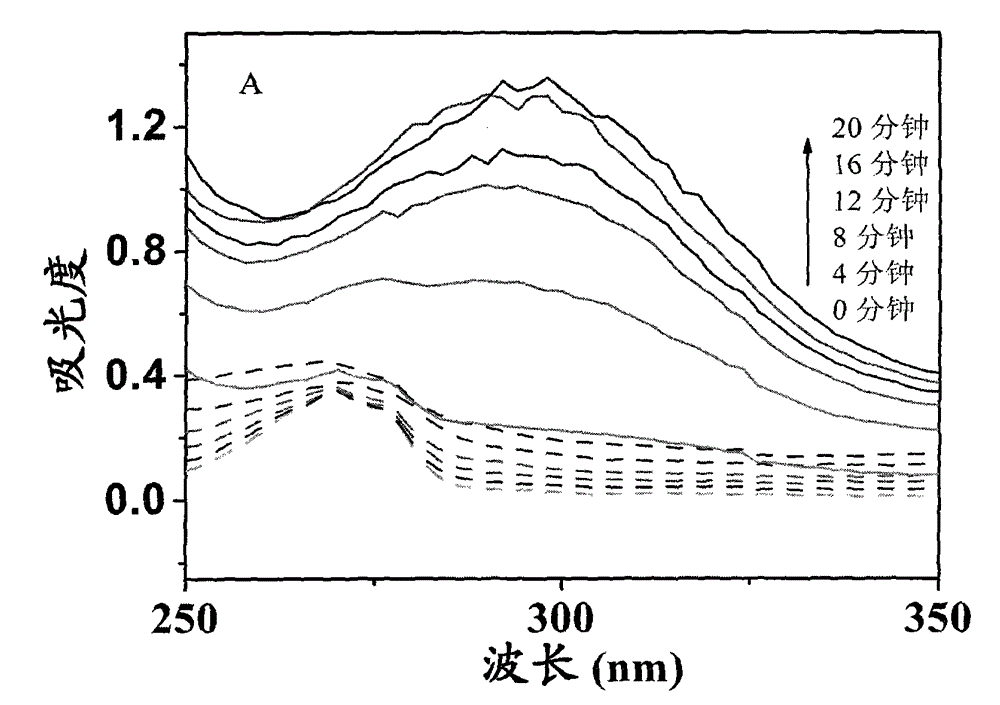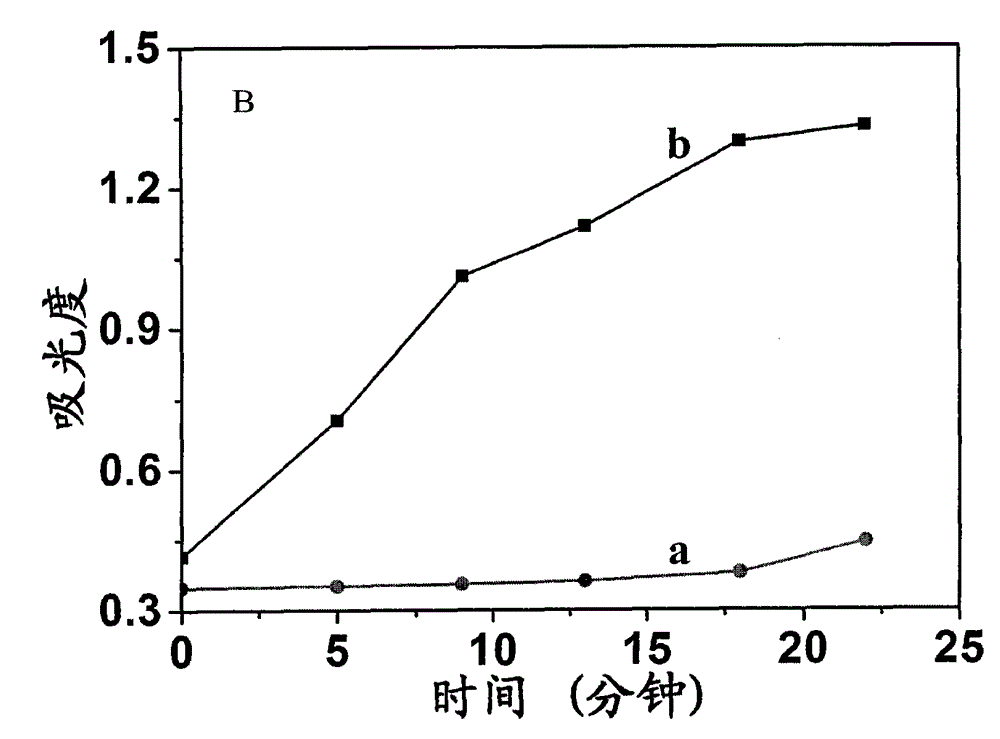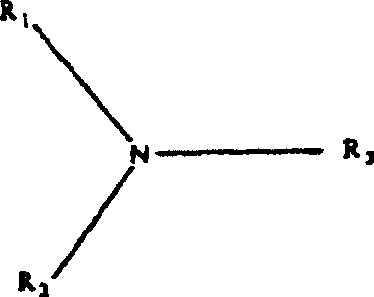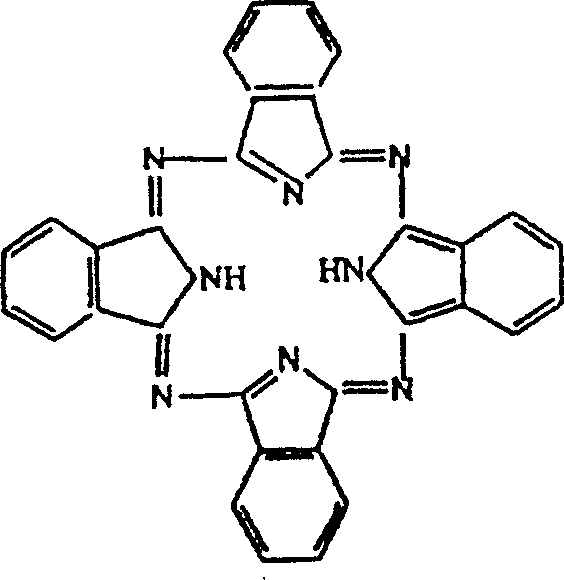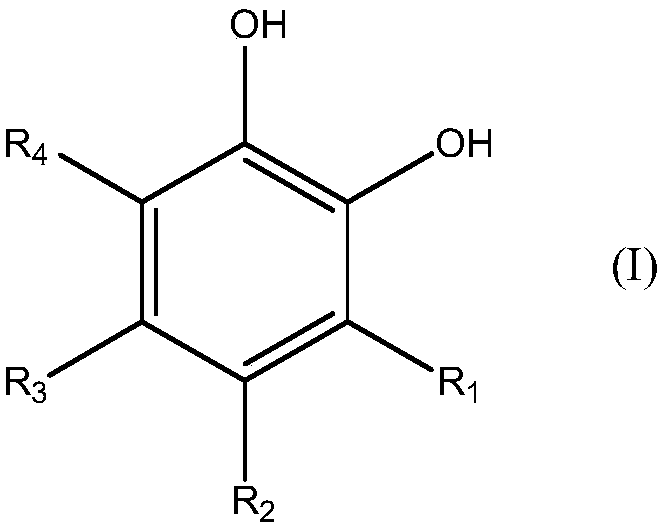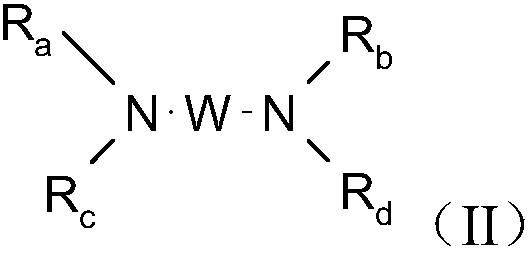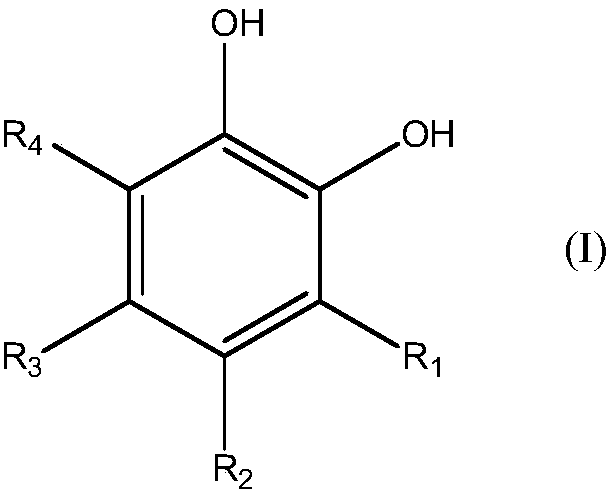Patents
Literature
46 results about "O quinones" patented technology
Efficacy Topic
Property
Owner
Technical Advancement
Application Domain
Technology Topic
Technology Field Word
Patent Country/Region
Patent Type
Patent Status
Application Year
Inventor
O-quinones are what is providing the protection from bacteria and fungi as they form a natural antiseptic. The o-quinones themselves have no color, but they further react with amino acids and oxygen to produce melanin, which is how we get the brown color on the cut cells of the apple.
Method for separating and purifying chlorogenic acid from eucommia ulmoides leaves
InactiveCN102351700ANon-destructiveAvoid lostOrganic compound preparationCarboxylic acid esters preparationChlorogenic acidDissolution
Based on the instable structure of o-dihydroxybenzene in chlorogenic acid and easily decomposed and oxidizable characteristics if chlorogenic acid is heated at high temperature for a long time, the invention discloses a steam explosion assisted method for extracting and purifying chlorogenic acid from eucommia ulmoides leaves, comprising the following steps of: placing the eucommia ulmoides leaves, which have been pre-immersed in acid water at the pH of 2.0-6.5 for 5-180 min, into a steam explosion tank; allowing one or any two combined steam explosion mediums selected from air, carbon dioxide, ozone, liquid nitrogen, nitrogen, steam, supercritical CO2 and ethanol to enter; carrying out steam explosion treatment at the temperature of 30-100 DEG C for 1-30 min; adding the material which has undergone the steam explosion treatment into hot water, directly extracting chlorogenic acid, merging extracts and purifying to obtain the chlorogenic acid quality goods. By multimedium combined low temperature steam explosion pretreatment, the stability of the active component chlorogenic acid is protected, and simultaneously the cell wall of the eucommia ulmoides leaves is effectively destroyed, so as to primarily release the influence of the compact cell-wall structure of the eucommia ulmoides leaves on the dissolution of chlorogenic acid during extraction and raise the recovery rate of chlorogenic acid in the eucommia ulmoides leaves. The invention provides a new technological approach for high-efficiency comprehensive utilization of eucommia ulmoides leaves.
Owner:INST OF PROCESS ENG CHINESE ACAD OF SCI
Electrophotographic photoconductor containing simple quinones to improve electrical properties
InactiveCN1358282AReduce sensitivityVector reductionElectrography/magnetographyElectricityElectrical conductor
A photoconductor for use in electrophotographic reproduction devices is disclosed. The photoconductor provides simultaneous improvement in both photoreceptor sensitivity and fatigue, while also providing higher charge voltage, lower residual voltage and lower dark decay. The photoconductor of the present invention includes simple quinone additives in either the charge generation layer, the charge transport layer, or both layers. Quinone additives are preferably selected from o-quinone, duroquinone, diphenoquinone, naphthaquinone, and mixtures of those materials, with duroquinone and the mixture E+Z 3, 3'-di-t-butyl-5, 5'-dimethyl diphenoquinones being preferred.
Owner:LEXMARK INT INC
Method for producing an arene with an aromatic c-n bond ortho to an aromatic c-o bond
ActiveUS20170066711A1Group 4/14 element organic compoundsOrganic compound preparationQuinoneHydrogen atom
A method for producing an arene with an aromatic C—N bond ortho to an aromatic C—O bond from a hydroxy arene comprising said aromatic C—O bond is provided. This method comprising the steps a) ortho-oxygenating the hydroxy arene to produce an ortho-quinone, b) condensating the ortho-quinone with a nitrogen nucleophile to generate a compound of Formula (IVa) or (IVb), and c) allowing 1,5-hydrogen atom shift of the compound of Formula (IVa) or (IVb), thereby producing arenes with a C—N bond ortho to a C—O bond of Formula (Va) and (Vb), respectively:
Owner:MCGILL UNIV
Preparation method of o-dihydroxybenzene
ActiveCN104072338AEfficient preparationReduce energy consumptionPreparation by oxidation reactionsOrganic compound preparationCyclohexane-1,2-diolCyclohexene
The invention provides a preparation method of o-dihydroxybenzene. The preparation method comprises the following steps: (1) under a reaction condition that can convert cyclohexene into 1,2-cyclohexanediol through oxidation, contacting cyclohexene and an oxidant with a catalyst so as to obtain reaction fluid containing 1,2-cyclohexanediol, removing the negative ions and positive ions in the reaction fluid so as to obtain dehydrogenation stock solution; (2) under a liquid phase catalytic dehydrogenation condition, contacting the dehydrogenation stock solution with a dehydrogenation catalyst. In this preparation method, 1,2-cyclohexanediol does not need to be removed before the hydrogenation preparation of o-dihydroxybenzene, so the preparation method has the advantages of simple technology, reduced energy consumption, and high o-dihydroxybenzene yield, and has a very high industrial application value.
Owner:昌德新材科技股份有限公司
Novolak resin mixtures and photosensitive compositions comprising the same
Disclosed is an alkali-soluble, film-forming novolak resin mixture containing at least two novolak resins, each novolak resin containing the addition-condensation reaction product of at least one phenolic compound with at least one aldehyde source, wherein the phenolic compound for first novolak resin contains 90-100 mole % of meta-cresol, and the phenolic compound for the second novolak resin contains less than 50 mole % of meta-cresol. Also disclosed is a photosensitive composition, containing an admixture of: a) the above-mentioned novolak resin mixture; b) at least one o-quinone photoactive compound; and c) at least one photoresist solvent. Also disclosed is a method for producing a microelectronic device by forming an image on a substrate, which involves: a) providing the above-mentioned photosensitive composition; b) thereafter, coating a suitable substrate with the photoresist composition from step a); c) thereafter, heat treating the coated substrate until substantially all of the solvent is removed; image-wise exposing the coated substrate; and then removing the imagewise exposed or, alternatively, the unexposed areas of the coated substrate with a suitable developer.
Owner:AZ ELECTRONIC MATERIALS (JAPAN) KK
Sensor for detecting phenolic substance in compost and detection method thereof
InactiveCN1837809AIncreased sensitivityImprove anti-interference abilityMaterial analysis by electric/magnetic meansSpecial data processing applicationsLinear regressionPhenol
This invention relates to a sensor for detecting phenolic substance in compost and detection method thereof. With the carbon paste electrode modified with laccase-Fe3O4 magnetic nano grain as the work electrode to detect the response current variation of compost leachate in tri-electrode electrolytic bath; with given regression equation that is linear for hydroquinone of 1*10-7~1.375*10-4M and pyrocatechin of 5*10-8~2.75*10-4M, and computing the phenol content in compost. This invention is faster than HPLC and overcomes the defects in spectrophotometry, and has wide application for domestic garbage compost control system.
Owner:HUNAN UNIV
Method for totally synthesizing berberrubine from catechol
InactiveCN109705113AFew synthetic stepsReduce usageOrganic chemistryChemical synthesisFormylation reaction
The invention relates to a method for synthesizing a drug, and concretely relates to a method for synthesizing berberrubine from catechol. The method comprises the following steps: carrying out a selective methylation reaction on the raw material catechol and 2-chloromethane to obtain o-methoxyphenol, and carrying out a selective formylation reaction to obtain 2-hydroxy-3-methoxybenzaldehyde; carrying out a methylenation reaction on catechol and 2-chloromethane to obtain piperidine, and carrying out a catalytic addition reaction on the piperidine and 2-chloroethylamine to obtain homopiperonylamine; carrying out a one-pot condensation hydrogenation reaction on the homopiperonylamine and 2-hydroxy-3-methoxybenzaldehyde under the action of a nickel-based catalyst, adding hydrochloric acid tothe obtained reaction product, cooling obtained crystals, and performing filtration to obtain a hydrochloride condensate; and refining the hydrochloride condensate, carrying out a cyclization reactionon the refined hydrochloride condensate and glyoxal under the action of a copper-based catalyst, refining the obtained reaction product, adding hydrochloric acid, performing cooling for crystallization, and filtering and washing obtained crystals to obtain the product berberrubine. The method realizes industrial total synthesis of the berberrubine, and opens up a chemical synthesis method for berberrubine drugs.
Owner:SHENYANG INSTITUTE OF CHEMICAL TECHNOLOGY
Application of o-quinone structure-contained compounds in preparing tumor resistant medicament
The invention discloses application of a series of non-6-site methyl substituted o-quinone structure-contained compounds in aspect of preparing anticancer medicaments. The compounds are derivatives obtained by reforming a Mansonone F (mansonone, Msn) structure, and the compounds comprise the structural formula shown in the specification, wherein A expresses the formula shown in the specification. The anticancer cell toxic activity IC50 of the o-quinone structure-contained compounds disclosed by the invention is equal to 1-20mu M(NCI-460 and PC-3 cell strain). The activity of certain compounds is tens of times stronger than that of etoposid and is 50 times stronger than that of a natural product Mansonone F. The invention has favorable application prospect.
Owner:SUN YAT SEN UNIV
Oxa-Michael addition reaction method to generate o-quinone methides in situ by Sc(III) catalysis of alcohols
InactiveCN109438192AAvoid expensiveAvoid conditionsEther preparation by compound dehydrationMethyl groupO quinones
The invention provides an oxa-Michael addition reaction method to generate o-quinone methides by Sc(III) catalysis of alcohols. 2-(Hydroxy(phenyl)methyl)phenol compounds and alcohol compounds are catalyzed by Sc(III) to generate o-quinone methides in situ and cause oxa-Michael addition reaction; product yield reaches 88-98%. The method herein is simple to perform; the materials and reagents are simple; the reaction product yield is high; the defect that the traditional methods employ expensive catalysts and have strict conditions is avoided; the product is easy to separate and purify; the method herein is important to the methodological study on o-quinone methides and is important to total synthesis of natural products and discovery of drugs.
Owner:NEW MATERIAL INST OF SHANDONG ACADEMY OF SCI
Positive photosensitive resin composition, method for forming pattern, and electronic part
ActiveUS7638254B2High resolutionHigh sensitivityPhotomechanical apparatusDiazo compound compositionsImage resolutionHeat resistance
Provided is a positive photosensitive resin composition which is advantageous not only in excellent sensitivity, resolution and adhesion, but also in excellent heat resistance even when the composition is cured by a low-temperature process at equal to or lower than 280° C., as well as low water absorption and capability to give a pattern with favorable configuration. The positive photosensitive resin composition contains: (a) alkaline aqueous solution-soluble polyamide having a polyoxazole precursor structure; (b) an o-quinonediazide compound; and (c) a latent acid generator which generates acid upon heating. The composition optionally further contains (d) a compound having a phenolic hydroxyl group or (e) a solvent.
Owner:HITACHI CHEM DUPONT MICROSYSTEMS LTD
Amino acid tanshinone phenolic ester derivatives and preparation method thereof
ActiveCN103980341AGood water solubilityEasy to makeOrganic active ingredientsOrganic compound preparationDiseaseSalvia miltiorrhiza
The invention relates to amino acid tanshinone phenolic ester derivatives and a preparation method thereof. The derivatives are obtained by reducing tanshinone compounds and performing esterified modification on the reduced tanshinone compounds and an amino acid into prodrugs, wherein the tanshinone compounds are phenanthrenequinone compounds which exist in salvia miltiorrhiza and have an o-quinone structure; the esterified amino acid is alpha-amino acid. The amino acid tanshinone phenolic ester derivatives are compounds having a structure of a general formula (I) or medicinal salts thereof, wherein R1 and R2 represent H or acyl alpha-amino acid and a salt thereof, and R1 and R2 are not H at the same time. The amino acid tanshinone phenolic ester derivatives have the beneficial effects that firstly, the new tanshinone derivatives are provided and the new substances have potential treatment effect on some serious diseases such as tumors, and secondly, amino acid tanshinone phenolic ester derivatives have excellent water solubility and thus can be prepared into injections conveniently in addition to various oral preparations, and therefore, the amino acid tanshinone phenolic ester derivatives are capable of quickly taking effect in disease treatment. As important prodrugs, the amino acid tanshinone phenolic ester derivatives have important application value.
Owner:南京虹桥医药技术研究所有限公司
Carbonyl-containing covalent organic framework KT-Tp COFs material as well as preparation method and application thereof
ActiveCN111205195AImprove energy storage performanceOrganic chemistryOrganic compound preparationQuinonePolymer science
The invention discloses a carbonyl-containing covalent organic framework KT-Tp COFs material as well as a preparation method and application thereof. The carbonyl-containing covalent organic frameworkKT-Tp COFs material has a structure represented by a formula (IV), wherein m is equal to 0-2, and n is equal to 2; an o-quinone structure is introduced into a COFs skeleton, and experimental resultsshow that the COFs skeleton with the o-quinone structure has better energy storage performance than COFs with only isolated carbonyl, and the carbonyl-containing covalent organic framework KT-Tp COFsmaterial is applied to capacitors.
Owner:TIANJIN UNIV
Coating composition and coated article
InactiveCN101445691AImprove corrosion resistanceExcellent exposure corrosion resistanceLayered productsAnti-corrosive paintsEpoxyHydroquinone Compound
The present invention relates to a coating composition that can form a coating film with excellent oxygen barrier properties. An object of the invention is to provide a coated article having excellent corrosion resistance using the coating composition. The present invention provides a coating composition comprising: a modified epoxy resin (A) containing a benzene diether structure represented by a specific formula (1), which is obtained by reacting diglycidyl ether (a1) with at least one phenol (a2) selected from resorcinol, hydroquinone, and catechol; and a crosslinking agent (B).
Owner:KANSAI PAINT CO LTD
Nucleophilic addition reaction method for scandium catalyzed mercaptan to o-quinone methides
The invention relates to a nucleophilic addition reaction method for scandium catalyzed mercaptan to o-quinone methides. The method comprises the following steps: dissolving 2-(hydroxyl(phenyl)methyl)phenolic compounds and sulfur alcohol compounds into a solvent, adding a Sc(III) catalyst, stirring and reacting at a temperature of 30-70 DEG C for 5-10 hours; extracting the reacted reaction solution, washing and drying the organic layer, removing the solvent, performing silica gel column chromatography on the residues, thereby obtaining the product. According to the method, a trivalent scandium catalyst is utilized, the method is mild in synthesis condition, small in limitation of replace types of neutral reactions and functional groups and high in yield, and the high-efficiency and environmental-friendly thia-michael addition reaction is realized.
Owner:山东济清科技服务有限公司
Naphtho dihydrofuryl o-quinone compound and its preparation method and use
The invention provides an inhibitor aiming at PTP, the construction formula of which is presented in diagram. It is demonstrated that the inhibitor can inhibit activity of different PTP, and it can be used to treat disease caused by PTP, especially tumor. The invention also provides the method for preparing said inhibitor, inhibiting action for PTP at molecular level and anti-tumor action at cell level.
Owner:SHANGHAI INST OF MATERIA MEDICA CHINESE ACAD OF SCI
Propolis alcohol extract-cyclodextrin-chitosan-mucoprotein sustained-release gel as well as preparation method and application thereof
InactiveCN113521305AIncrease coverageImprove solubilityAerosol deliveryDigestive systemQuinoneCellulose
The invention provides propolis alcohol extract-cyclodextrin-chitosan-mucoprotein sustained-release gel as well as a preparation method and an application thereof, and belongs to the technical field of sustained-release medicines. According to the invention, a sodium carboxymethyl cellulose-mussel mucoprotein polymer and a propolis alcohol extract wrapped by cyclodextrin-chitosan are subjected to cross-linking compounding, and a catechol structure of mussel mucoprotein can be oxidized into an o-quinone structure under an alkaline or oxidation condition of a mussel mucoprotein compound and mussel shell glycan; a stable sustained-release structure is formed by combining the active amino group on the surface of mussel shell glycan through a reaction similar to Schiff base, so that on one hand, the gel is enabled to be attached to an ulcer surface to form a long-term protection and administration system while being quickly gelled; on the other hand, the unique porous elastic structure of the mussel shell glycan realizes gradual slow release of the propolis alcohol extract, the propolis alcohol extract continuously acts on the ulcer, and the clinical effect is better.
Owner:梓森科技股份有限公司
Integration method for preparing o-methyl allyloxyphenol
InactiveCN101215227AShort reaction timeHigh selectivityChemical industryEther preparationChlorideRaffinate
The invention discloses an integrated process for preparing monoether. Pyrocatechol is in conversion reaction with methallyl chloride in reaction solvent and conversion rate of the pyrocatechol is controlled between 60-85%. Reaction solution is mixed with nonaqueous solvent to form a solution after being removed from the reaction solvent. Extracting agent is used to extract pyrocatechol which are not reacted completely in the solution to recycle, and extraction raffinate of monoether containing reaction products is obtained. The invention largely improves yield coefficient calculated by the pyrocatechol, and simultaneously decreases the loss of methylallyl chloride.
Owner:XIANGTAN UNIV
Method for synthesizing guaiacol
The invention discloses a method for synthesizing guaiacol, and belongs to the technical field of organic chemical synthesis. The prior method for synthesizing the guaiacol has more side reactions. The method comprises the following steps: adding pyrocatechol, polyethylene glycol with the molecular weight of 400 to 14,000, sodium hydroxide, methyl chloride, methylbenzene solvent and water into an autoclave, and heating, stirring and refluxing the mixture for 1 to 10 hours at the temperature of between 100 and 150 DEG C; and adding hydrochloric acid into the mixture after reacting to control the pH at 5 to 6, standing and demixing the mixture to obtain a methylbenzene layer containing the guaiacol on the upper layer, and evaporating methylbenzene to obtain the guaiacol, wherein the molar ratio of the pyrocatechol to the methyl chloride to the sodium hydroxide is 1:1:0.9-1:1.8:1.2, and the adding amount of the polyethylene glycol is 1 to 10 percent of the mass of the pyrocatechol. The method has the advantages of high yield, low cost, and the like.
Owner:BEIJING UNIV OF CHEM TECH
Method for efficiently synthesizing optically active poly-substituted 2,3-dihydrobenzofuran compound through catalysis of asymmetric organic phosphine
ActiveCN108997368AImprove catalytic performanceReduce dosageOrganic chemistry methodsHydrogenHalogen
The invention belongs to the field of an organic synthesis method and discloses a method for efficiently synthesizing an optically active poly-substituted 2,3-dihydrobenzofuran compound through catalysis of asymmetric organic phosphine. A chiral phosphine compound serves as a catalyst, and a compound of a formula A1 or a compound of a formula A2 or a compound of a formula B perform reaction to obtain a compound of a formula C1 or a compound of a formula C2 separately (the formulas are as shown in the specification), wherein R1 is alkyl, R2 is alkyl or benzyl, R3 is alkyl, R4 is hydrogen, halogen or alkoxy and R5 is hydrogen, halogen or alkoxy. According to the method, the catalytic effect is good; Morita-Baylis-Hillman carbonic ester reacts with an o-quinone methyl compound to obtain a series of 2,3-dihydrobenzofuran with optical activity; and the method is high in yield, high in stereoselectivity, high in catalytic efficiency, simple to operate and low in cost, and has a very good industrialized application prospect.
Owner:SOUTH UNIVERSITY OF SCIENCE AND TECHNOLOGY OF CHINA
Preparation method for Gd2O3 nanoparticle controllably surface-modified by dopamine and used for positive reinforcement of MRI radiography
InactiveCN103920167APreparation process safetyIncrease signal strengthMaterial nanotechnologyNMR/MRI constrast preparationsAttachment proteinMRI contrast agent
The invention relates to preparation and application of a Gd2O3 nanoparticle controllably surface-modified by dopamine and used for positive reinforcement of MRI radiography and provides a preparation method and application of such an MRI contrast agent, belonging to the fields of bioimaging technology and nanomedical technology. According to the invention, controllable bionic surface modification of an ultra small Gd2O3 nanoparticle by dopamine is carried out by imitating attachment proteins of marine mussels, employing the property of strong chelating action of dopamine on metal ions and utilizing a certain-strength binding force on metals produced by the strong anchoring effect of an o-dihydroxybenzene group, and thus, the Gd2O3 contrast agent--DA-Gd2O3Gd2O3 / DA which is controllably surface-modified by dopamine and used for positive reinforcement of MRI radiography is obtained. The Gd2O3 contrast agent provided by the invention has an obvious contrast reinforcing effect, can improve intensity of magnetic resonance signals and brighten the image of a related position and is applicable as a contrast agent for MRI T1-weighted positive reinforcement.
Owner:XIEHE HOSPITAL ATTACHED TO TONGJI MEDICAL COLLEGE HUAZHONG SCI & TECH UNIV +1
Method for synthesizing chiral oxygen-containing eight-membered ring compound through palladium-catalyzed asymmetric allyl cycloaddition reaction
InactiveCN113583015ASimple structureLow priceOrganic-compounds/hydrides/coordination-complexes catalystsAsymmetric synthesesQuinonePtru catalyst
The invention provides a method for synthesizing a chiral oxygen-containing eight-membered ring compound through palladium-catalyzed asymmetric allyl cycloaddition reaction. The method comprises the following steps: in a solvent, under the catalysis of a palladium catalysis system, carrying out [4 + 4] cycloaddition reaction on a gamma-methylene-delta-valerolactone compound I and an o-quinone methylate II to obtain the chiral oxygen-containing eight-membered ring compound III. The palladium catalysis system is composed of a palladium catalyst and a chiral ligand, and the chiral ligand has a structure as shown in a formula IV. The oxygen-containing eight-membered ring compound constructed through the palladium-catalyzed asymmetric allyl cycloaddition reaction has the advantages that the operation is convenient and simple, the yield is high, the reaction raw materials are low in price and easy to obtain, the catalyst cost is low, the substrate application range is wide, the diastereoselectivity is good, the para-selectivity is high and the like.
Owner:SHANDONG UNIV
Methods for labeling a substrate using a hetero-diels-alder reaction
InactiveUS20110108411A1Increase profitHigh quantum and quantitative chemical yieldOrganic compound preparationCarbonyl compound preparationAqueous solutionIrradiation
Methods for labeling a substrate using a hetero-Diels-Alder reaction are disclosed. The hetero-Diels-Alder reaction includes the reaction of an o-quinone methide (e.g., an o-naphthoquinone methide) with a polarized olefin to form a hetero-Diels-Alder adduct. The o-quinone methide or the polarized olefin can be attached to a surface of a substrate, and the other of the o-quinone methide or the polarized olefin can include a detectable label. The o-quinone methide can conveniently be generated by irradiation of a precursor compound, preferably in an aqueous solution, suspension, or dispersion.
Owner:UNIV OF GEORGIA RES FOUND INC
Lightfast sunscreen composition
The present invention relates to photostable sunscreen compositions comprising sunscreen stabilizers. It is an object of the present invention to provide highly photostable sunscreen compositions, preferably derived from natural materials, while ensuring long-term efficacy of the UV-A organic sunscreens used therein. The present inventors have achieved this by including Tanshinone IIA, which is a diterpene-o-quinone, present in certain plants to achieve the desired sunscreen stabilization.
Owner:UNILEVER IP HLDG BV
A kind of amino acid tanshinol ester derivative and its preparation method
ActiveCN103980341BGood water solubilityEasy to makeOrganic active ingredientsOrganic compound preparationSolubilitySalvia miltiorrhiza
The invention relates to amino acid tanshinone phenolic ester derivatives and a preparation method thereof. The derivatives are obtained by reducing tanshinone compounds and performing esterified modification on the reduced tanshinone compounds and an amino acid into prodrugs, wherein the tanshinone compounds are phenanthrenequinone compounds which exist in salvia miltiorrhiza and have an o-quinone structure; the esterified amino acid is alpha-amino acid. The amino acid tanshinone phenolic ester derivatives are compounds having a structure of a general formula (I) or medicinal salts thereof, wherein R1 and R2 represent H or acyl alpha-amino acid and a salt thereof, and R1 and R2 are not H at the same time. The amino acid tanshinone phenolic ester derivatives have the beneficial effects that firstly, the new tanshinone derivatives are provided and the new substances have potential treatment effect on some serious diseases such as tumors, and secondly, amino acid tanshinone phenolic ester derivatives have excellent water solubility and thus can be prepared into injections conveniently in addition to various oral preparations, and therefore, the amino acid tanshinone phenolic ester derivatives are capable of quickly taking effect in disease treatment. As important prodrugs, the amino acid tanshinone phenolic ester derivatives have important application value.
Owner:南京虹桥医药技术研究所有限公司
Synthesis and application of an anti-melanoma prodrug activated by a dual bioactive factor cascade
ActiveCN113173940BLow toxicitySmall toxicityGroup 3/13 element organic compoundsAntineoplastic agentsQuinoneStage melanoma
The invention discloses an anti-melanoma prodrug activated by a cascade of dual biological active factors and a synthesis method and application thereof. The structural formula of the anti-melanoma prodrug is wherein R 1 is or n is 1-6, and R is a coumarin substituent or a triphenylphosphine substituent. The anti-melanoma prodrug activated by the cascade of dual bioactive factors of the present invention can be activated by hydrogen peroxide and tyrosinase cascade to generate a product with an o-quinone structure, wherein the prodrug can only be activated in melanoma cells to generate The active center of the drug causes damage to mitochondria, induces mitochondrial dysfunction, and exerts anti-cancer effects, while it has little toxicity to other cells, which minimizes the toxic and side effects of traditional anti-cancer drugs.
Owner:HUNAN UNIV
Preparation method of 6'-amino derivatives based on luteolin structure and application thereof
ActiveCN106674179AImprove hydrophilic abilityFew reaction stepsOrganic chemistryAntipyreticSide effectStructure function
The invention discloses a preparation method of 6'-amino derivatives based on a luteolin structure and an application thereof. Active groups with amino groups of different types are introduced into 6'-position of luteolin in order to prepare derivatives, luteolin and substances with amino active groups are used as raw materials, and a reaction is carried out in a condition with an ethanol-water mixed solvent and a certain acidity; a thin layer chromatography method is used for detecting and tracking the process; after the reaction finishes, a reaction solution is treated in order to obtain products. Oxidation and Michael addition and the like are reacted continuously in order to synthesize amino luteolin o-quinone derivates which may be stable, and the method has the advantages of a few reaction steps, operation convenience, low toxicity, mild condition, and low cost; non-steroidal anti-inflammatory medicament with the novel structure is prepared, and drug effects are enhanced; lipid / water participation coefficient of the whole molecule is adjusted, and pharmacokinetic parameters of lead compounds are influenced; pharmacological tests are carried out in order to research structure-function relationship of the luteolin compound, and non-steroidal anti-inflammatory medicament with good curative effect and small toxic and side effects are screened.
Owner:HUAIHAI INST OF TECH +1
Application of o-quinone structure-contained compounds in preparing tumor resistant medicament
The invention discloses application of a series of non-6-site methyl substituted o-quinone structure-contained compounds in aspect of preparing anticancer medicaments. The compounds are derivatives obtained by reforming a Mansonone F (mansonone, Msn) structure, and the compounds comprise the structural formula shown in the specification, wherein A expresses the formula shown in the specification. The anticancer cell toxic activity IC50 of the o-quinone structure-contained compounds disclosed by the invention is equal to 1-20mu M(NCI-460 and PC-3 cell strain). The activity of certain compounds is tens of times stronger than that of etoposid and is 50 times stronger than that of a natural product Mansonone F. The invention has favorable application prospect.
Owner:SUN YAT SEN UNIV
Novel method for improving tyrosinase-based catalytic degradation of phenol pollutant
InactiveCN104445629ARaw materials are green and cheapCatalytic degradation of phenol with high efficiencyOrganic-compounds/hydrides/coordination-complexes catalystsBiological water/sewage treatmentHigh concentrationGeneration rate
The invention discloses a novel method for improving tyrosinase-based catalytic degradation of a phenol pollutant and relates to the technical field of phenol pollutant degradation. The novel method comprises the following steps that tyrosinase and 1-ethyl-3-methylimidazole alanine ionic liquid are mixed according to a ratio of 1: 80 to form a mixed solution, the mixed solution is added with a high-concentration phenol compound solution, a high-concentration phenol compound solution is added into tyrosinase with a concentration the same as that of tyrosinase used in the step a, experiment results of a 1-ethyl-3-methylimidazole alanine ionic liquid use group and a blank group are compared so that an o-dihydroxybenzene generation rate is obtained. The novel method has easy processes, is environmentally friendly, produces pollution-less catalytic degradation products and is economic and efficient.
Owner:CHINESE ACAD OF FISHERY SCI
Electrophotographic photoconductor containing simple quinones to improve electrical properties
InactiveCN1218223CReduce sensitivityVector reductionElectrography/magnetographyElectricityElectrical conductor
A photoconductor for use in electrophotographic reproduction devices is disclosed. The photoconductor provides simultaneous improvement in both photoreceptor sensitivity and fatigue, while also providing higher charge voltage, lower residual voltage and lower dark decay. The photoconductor of the present invention includes simple quinone additives in either the charge generation layer, the charge transport layer, or both layers. Quinone additives are preferably selected from o-quinone, duroquinone, diphenoquinone, naphthaquinone, and mixtures of those materials, with duroquinone and the mixture E+Z 3, 3'-di-t-butyl-5, 5'-dimethyl diphenoquinones being preferred.
Owner:LEXMARK INT INC
Hair dyeing process using at least one ortho-diphenol,a manganese or zinc salt,hydrogen peroxide,(bi)carbonate,an alkaline agent and a titanium or scandium salt
InactiveCN107049803ADoes not harm coloringGood chromaCosmetic preparationsHair cosmeticsManganeseKeratin
The present invention relates to a process for dyeing keratin fibres,in particular human keratin fibres such as the hair,in which the said fibres are treated with one or more cosmetic compositions containing,taken together or separately in the said composition(s), the fo llowing ingredients: a) one or more ortho-dipheno l derivatives, b) one or more manganese salts or one or more zinc salts, c) hydrogen peroxide or one or more systems that generate hydrogen peroxide, d) one or more (bi)carbonates or one or more systems that generate (bi)carbonate(s), and e) one or more basifying agents other than the (bi)carbonate(s), and f) one or more salts chosen from titanium salts and scandium salts; it being understood that the pH of at least one of the compositions comprising at least one of the ingredients a) ,b), c), d), e) and / or f) is alkaline, i.e. greater than 7, and that the composition comprising f) the salt(s) chosen from titanium salts and scandium salts is applied to the keratin fibres as the last step of the dyeing process.
Owner:LOREAL SA
Features
- R&D
- Intellectual Property
- Life Sciences
- Materials
- Tech Scout
Why Patsnap Eureka
- Unparalleled Data Quality
- Higher Quality Content
- 60% Fewer Hallucinations
Social media
Patsnap Eureka Blog
Learn More Browse by: Latest US Patents, China's latest patents, Technical Efficacy Thesaurus, Application Domain, Technology Topic, Popular Technical Reports.
© 2025 PatSnap. All rights reserved.Legal|Privacy policy|Modern Slavery Act Transparency Statement|Sitemap|About US| Contact US: help@patsnap.com
